
Riddle your teen this
The teen years are challenging, not just for the person going through them, but for their parents as well. Suddenly, the once small child who adored you now wants nothing to do with you, and won’t even tell you how their day was. But, teenagers also think they know everything, so use that to your advantage by asking them to crack these riddles for teens. Play together for a family game night, and they might actually enjoy spending time with you again. If you’ve also got younger children, mix in some of the best riddles for kids.
But we couldn’t make it too easy, so we’ve included some pretty challenging riddles for teens in here too—who knows, maybe they’ll get the answers before you do. Teens do love being right, after all!
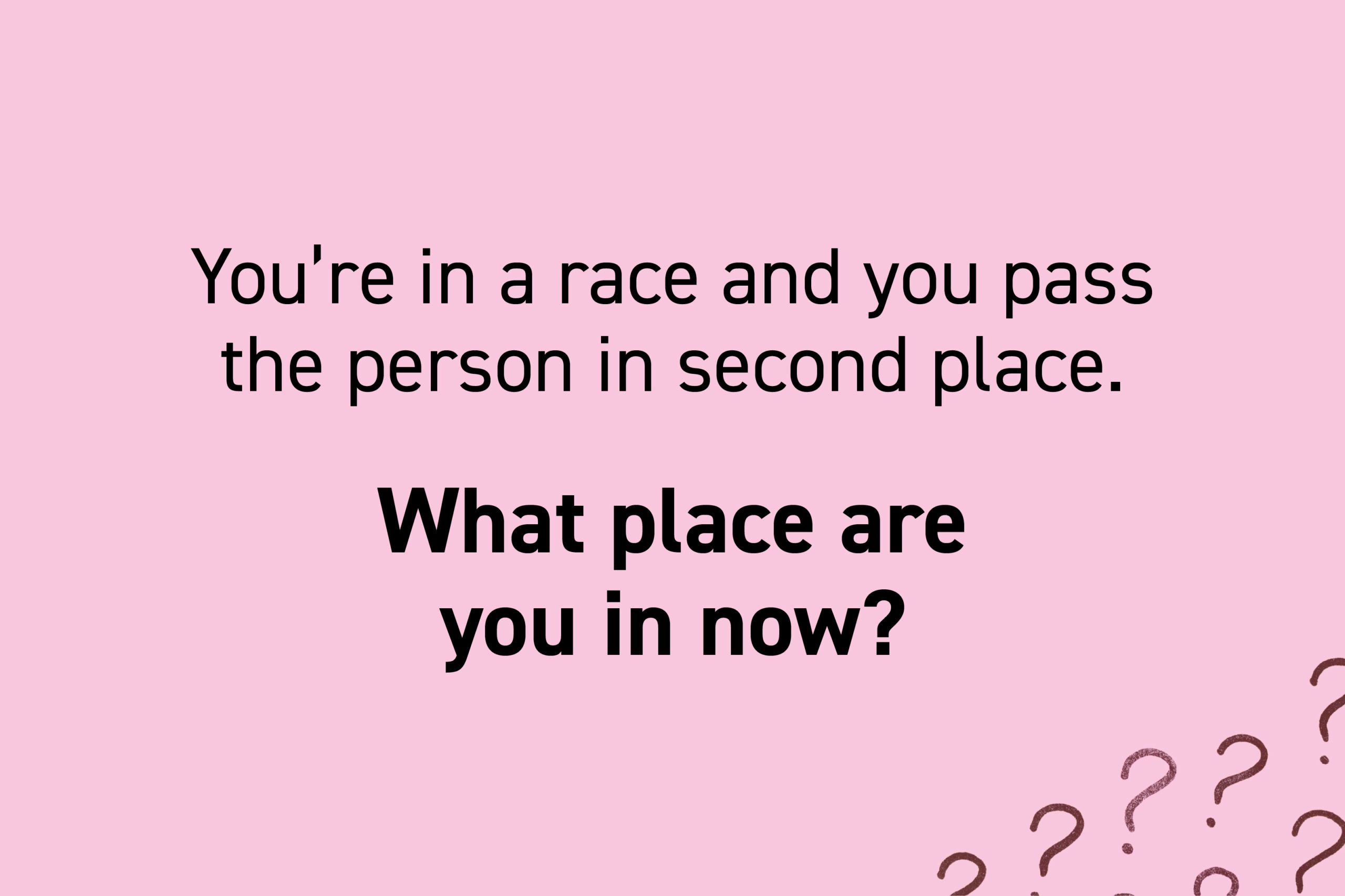
Riddle: Race to the finish
You’re in a race and you pass the person in second place. What place are you in now?
Your teen’s first thought is probably if you pass the person in second, you’ll be in first place—but that’s not true, because the person in first place is still there. Only when you pass the person in first place are you actually in first place.
Answer: Second place. Too easy? Try these brain teasers that will leave you stumped.

Riddle: Sleepytime
How can you go 10 days without sleep?
This is a trick question! It takes the word “day” literally, so instead of meaning 24 hours, it means the daytime—as opposed to the nighttime, when people sleep. You can also discuss with your teen whether they think this is a fair question; and have they ever had a teacher ask them a trick question on a test that they didn’t think was fair?
Answer: You sleep at night. How many of these popular riddles can you solve? No cheating!
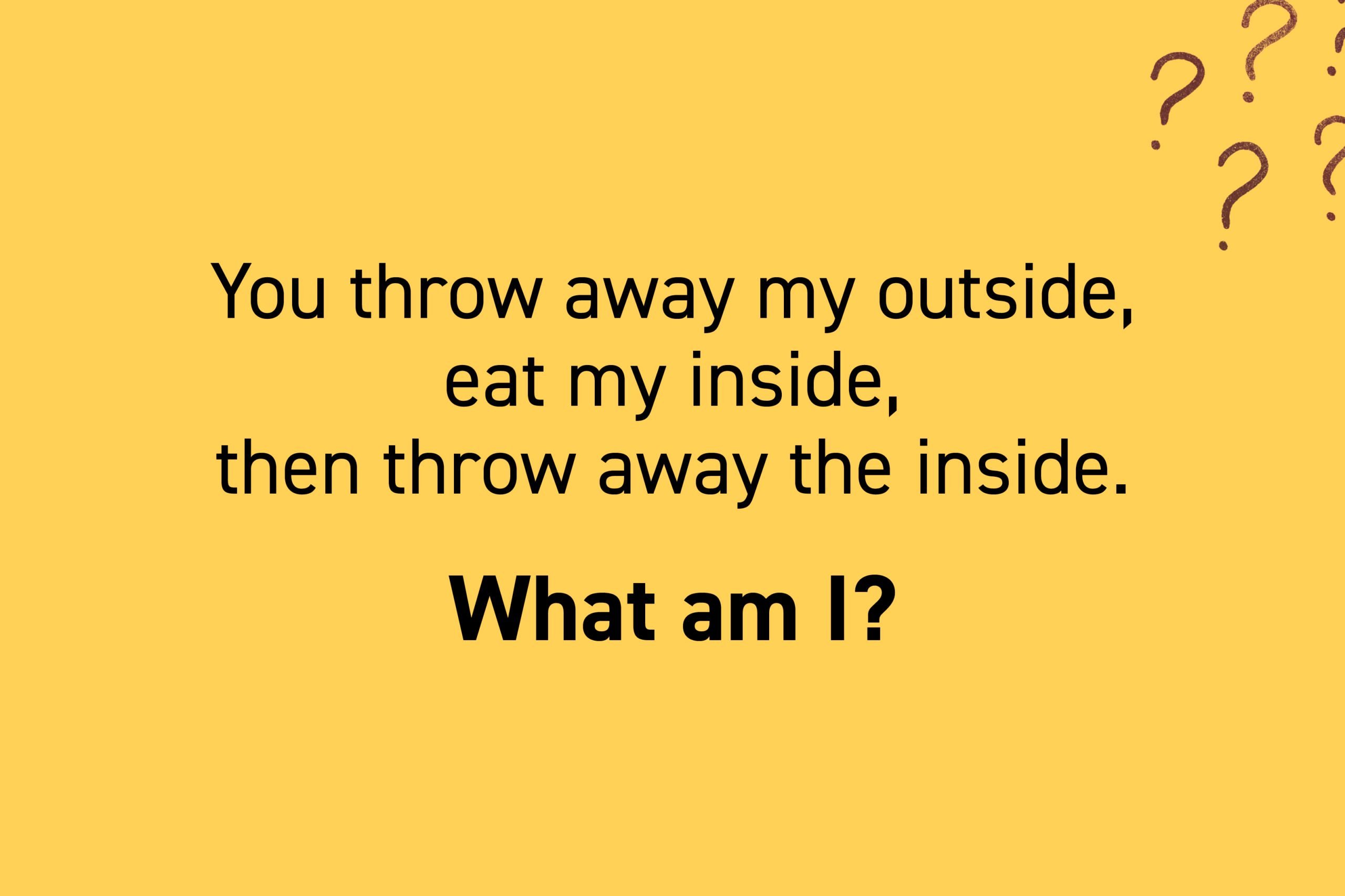
Riddle: Inside out
You throw away my outside, eat my inside, then throw away the inside. What am I?
The possibilities seem endless for this one, but there’s one clue that could help your teen get the answer: the word “eat,” so they know it’s something that can be consumed. Still, this one might have them scratching their heads for a while. Here are more tricky “What am I?” riddles.
Answer: Corn on the cob.

Riddle: Ride, er, riddle sharing
An Uber driver is going the opposite way down a one-way street. He passes five policemen along the way, none of which stops him. Why not?
We updated this one from “taxi driver” to “Uber driver” to better appeal to teens. This riddle tricks you by drawing your attention to the person’s occupation—but, it never says the person is actually engaged in that occupation at the time.
Answer: Because the Uber driver was walking.
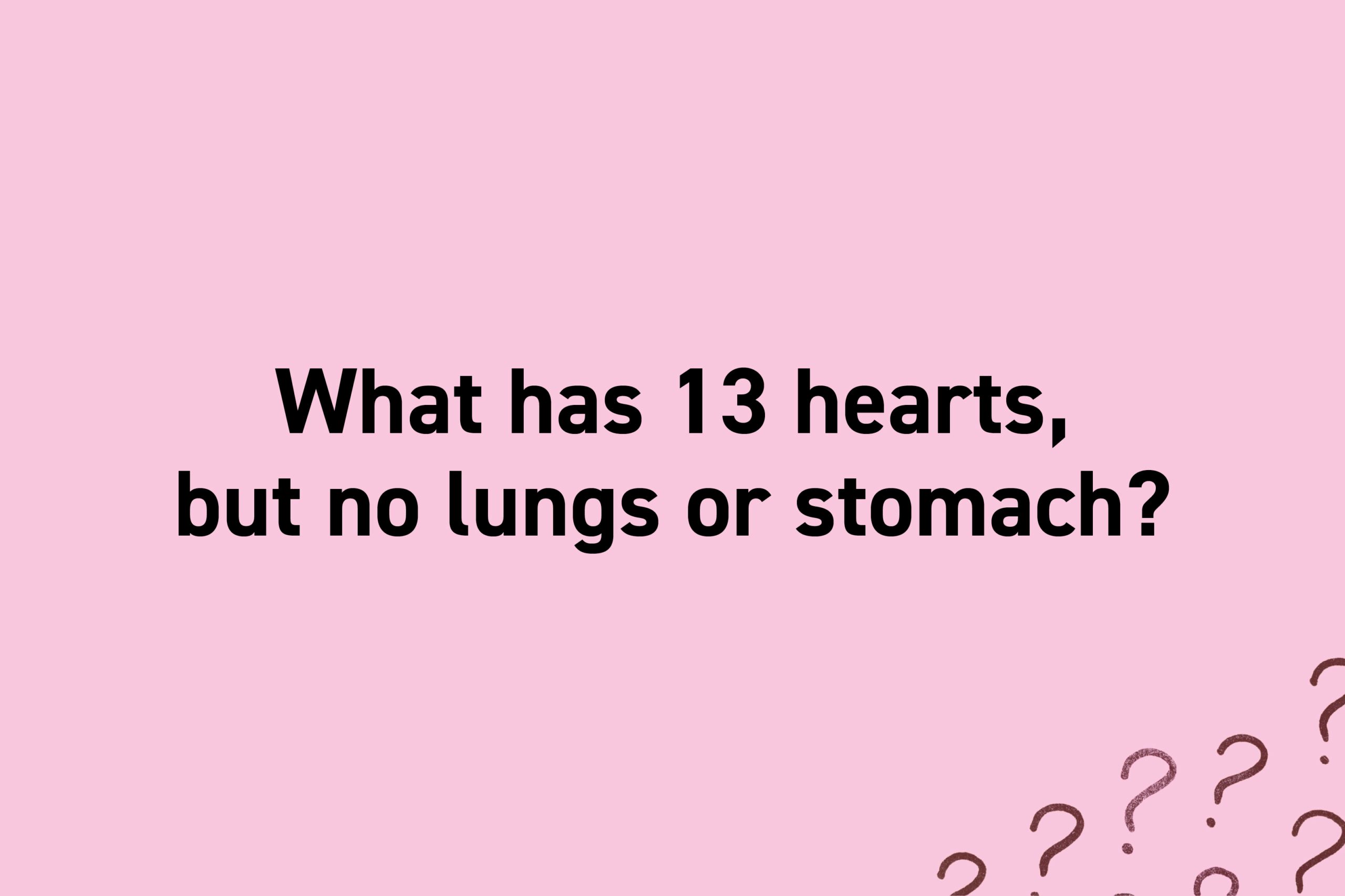
Riddle: Heart of the problem
What has 13 hearts, but no lungs or stomach?
Your teen will probably be thinking literally, and will be trying to remember from science class what animal matches this description! But with riddles, you have to think of multiple word meanings—in this case, what else “hearts” could refer to.
Answer: A deck of cards.
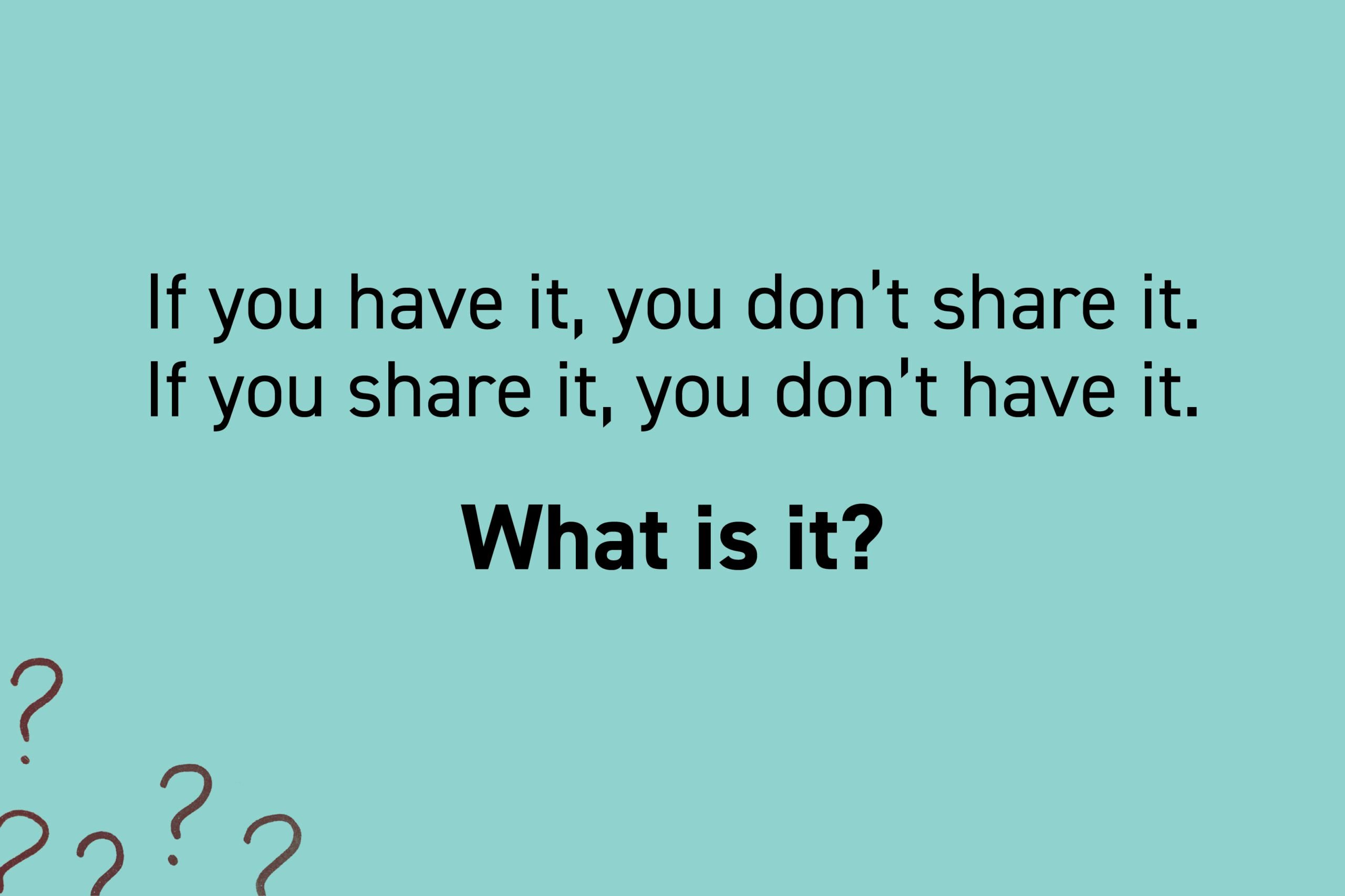
Riddle: Don’t tell
If you have it, you don’t share it. If you share it, you don’t have it. What is it?
The subject of this riddle is something that many teens know about—unfortunately, secrets and gossip are probably part of their lives. You can use the riddle as an opening to ask them what they think about keeping secrets: Is it ever OK to keep a friend’s secret, or to keep a secret from a friend? When is it not OK?
Answer: A secret.
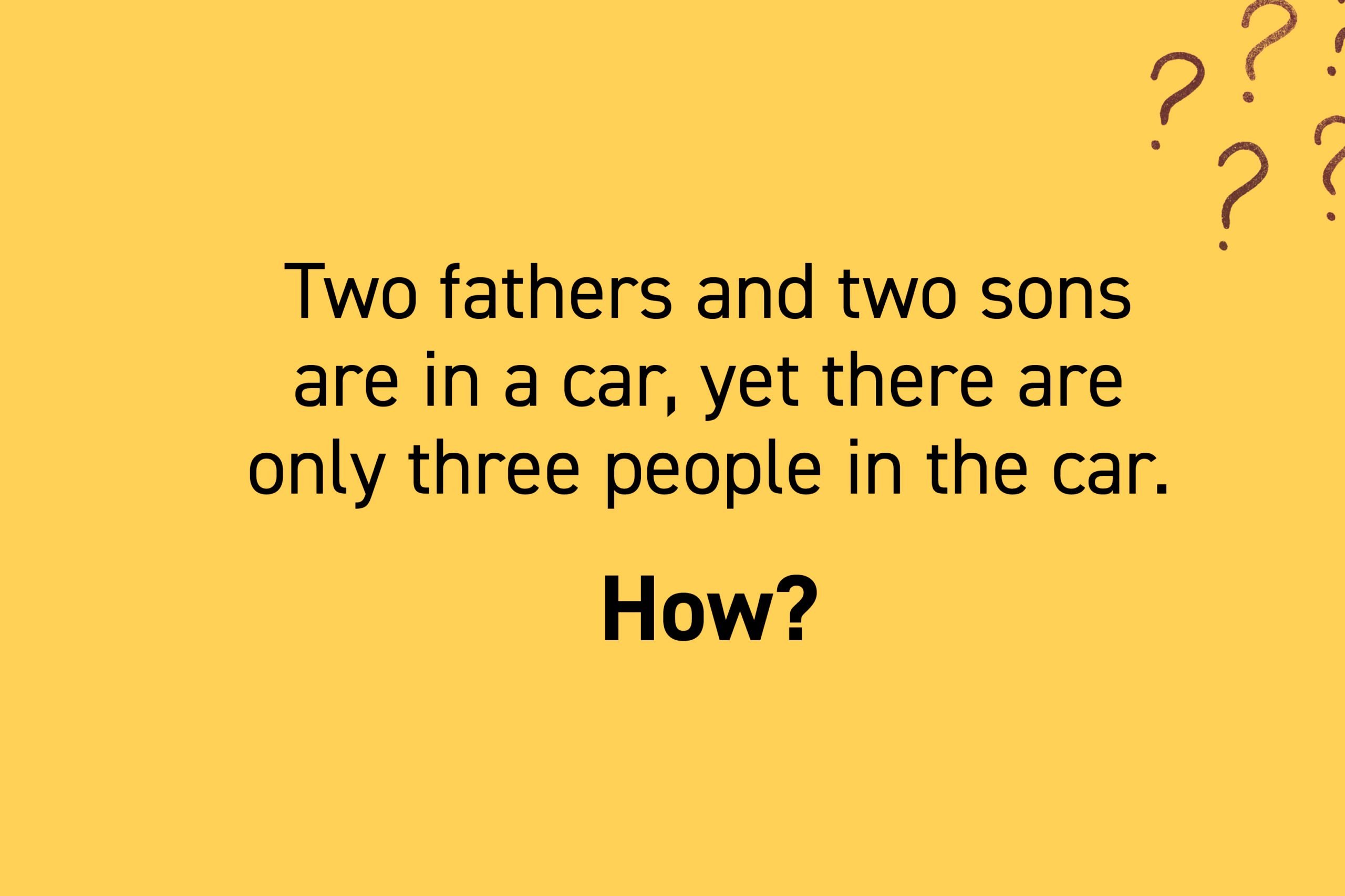
Riddle: All in the family
Two fathers and two sons are in a car, yet there are only three people in the car. How?
This logic riddle might have your teen thinking they have to do some complicated math. But this one is more about comprehending how a person—such as a teen’s own parent—can hold two titles at once: that of “father” and “son.”
Answer: They are a grandfather, father, and son. Check out these logic puzzles that will keep you guessing.
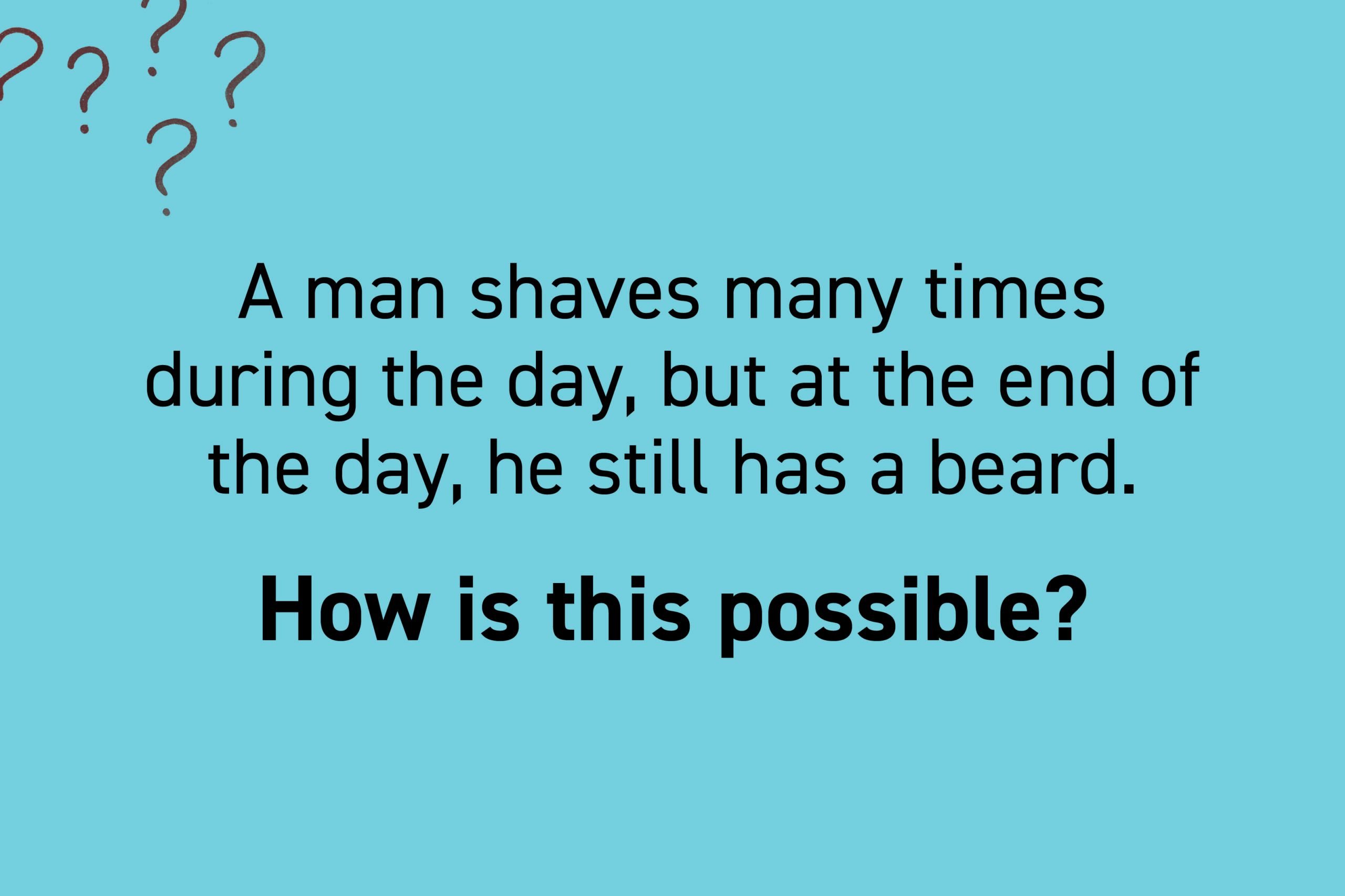
Riddle: A hairy problem
A man shaves many times during the day, but at the end of the day, he still has a beard. How is this possible?
This riddle plays will preconceived notions. We assume the man is shaving his own face, but that’s not the case! Having an open mind and seeing other possibilities is called “lateral thinking,” and teens will learn this technique as they solve riddles like this one.
Answer: The man is a barber.
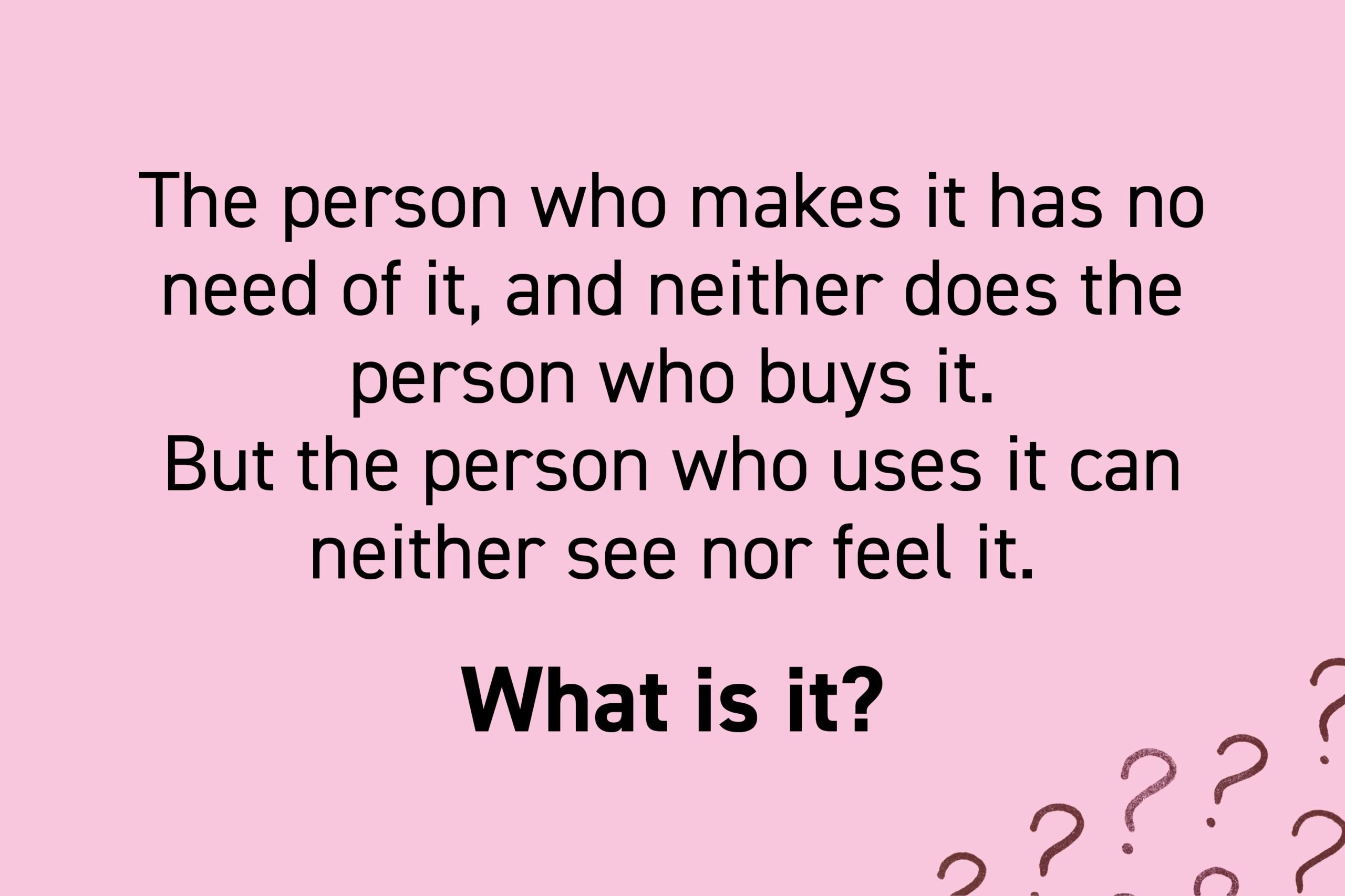
Riddle: A creepy question
The person who makes it has no need of it, and neither does the person who buys it. But the person who uses it can neither see nor feel it. What is it?
This riddle definitely has a touch of the macabre, but if your teen is into Halloween, murder mysteries, or scary movies, this one might be for them. Plus, it’s deadly hard to solve!
Answer: A coffin. Try more scary good riddles.
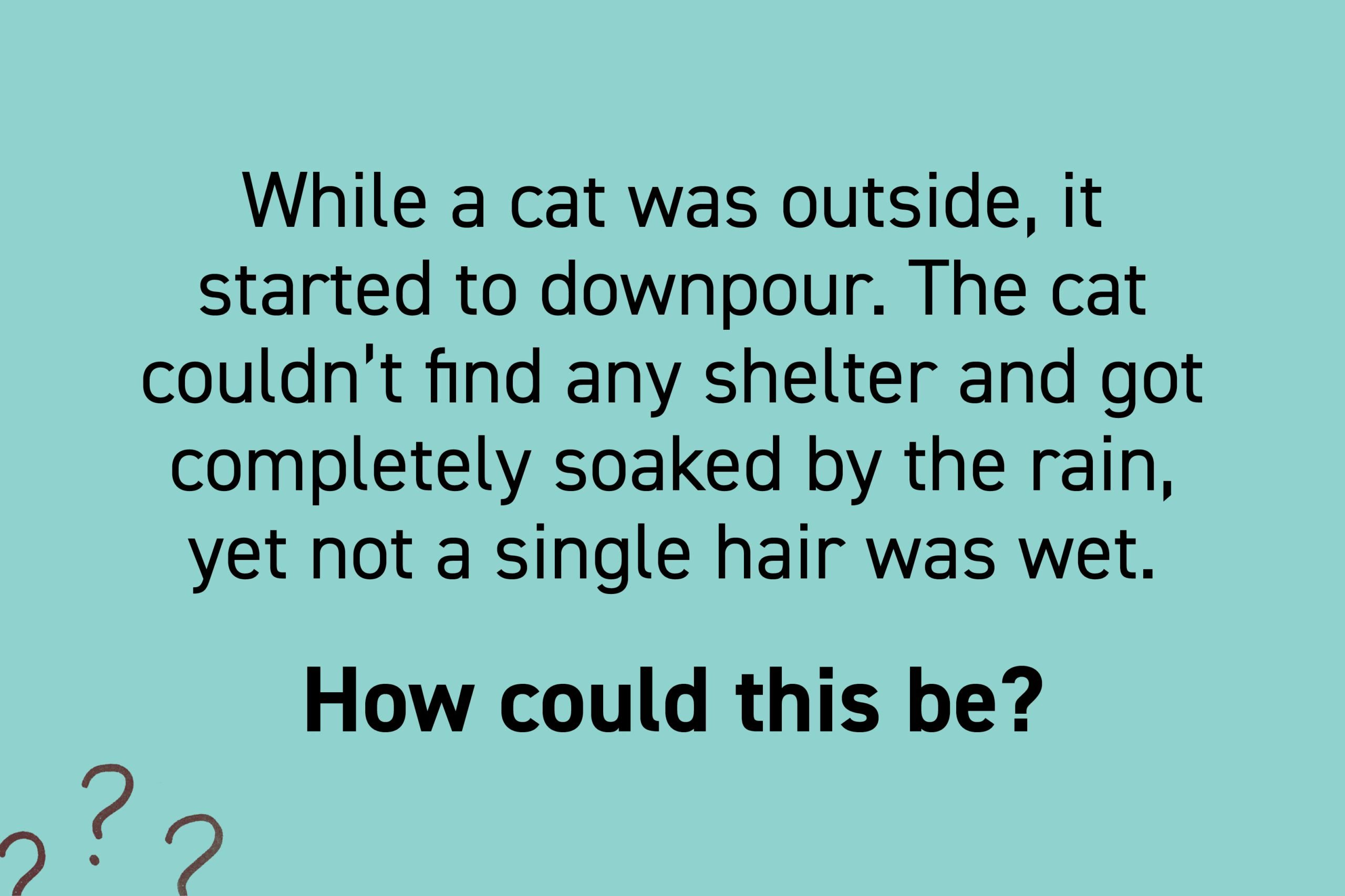
Riddle: Cat got your tongue?
While a cat was outside, it started to downpour. The cat couldn’t find any shelter and got completely soaked by the rain, yet not a single hair was wet. How could this be?
These have to be some of the oddest looking animals around—if your teen has never seen one, Google-image it and you’ll be laughing your hair off. There’s nothing that brings people together quite like giggling over odd things.
Answer: It was a hairless cat.
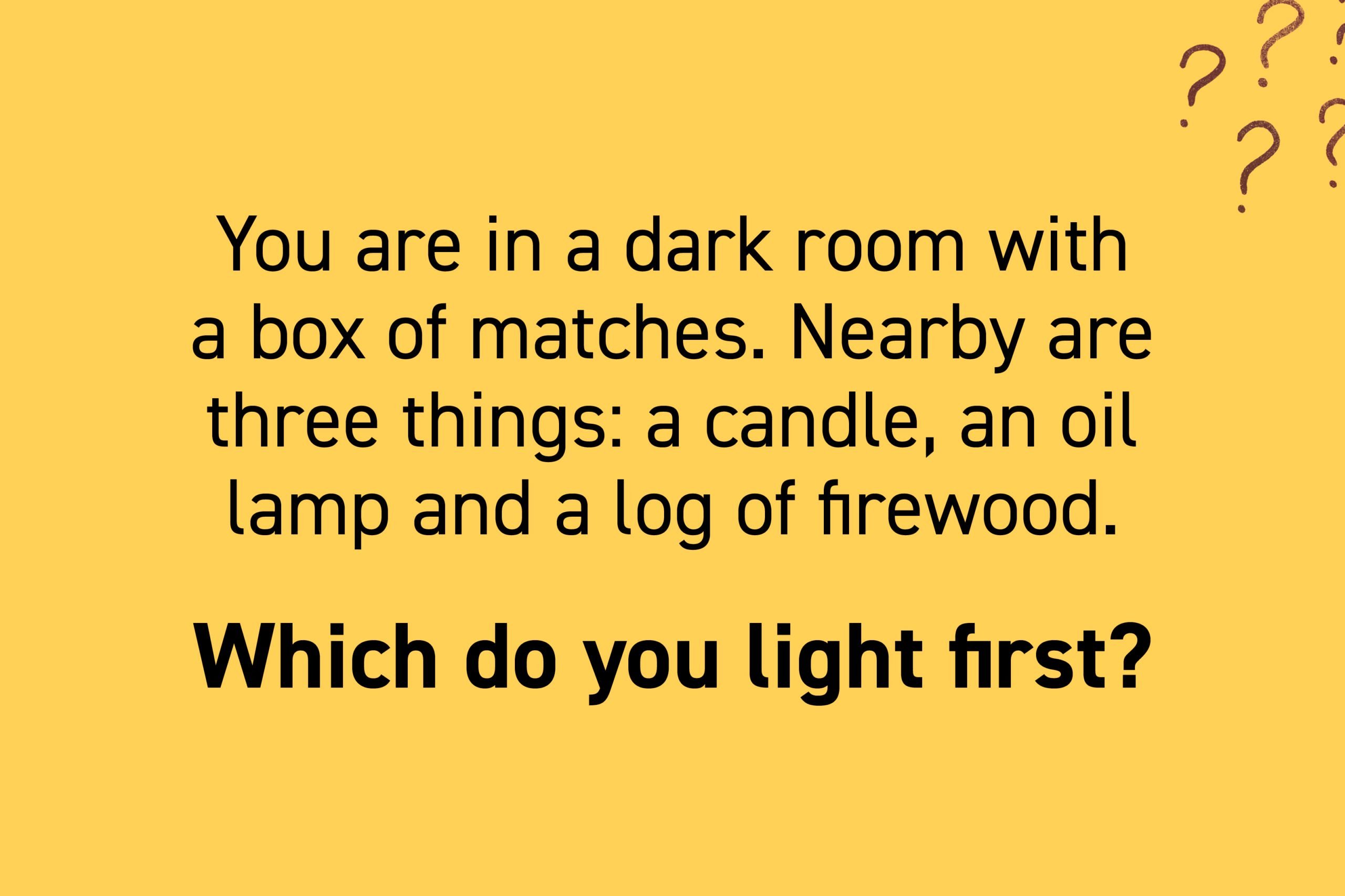
Riddle: Lights out
You are in a dark room with a box of matches. Nearby are three things: a candle, an oil lamp and a log of firewood. Which do you light first?
The solution isn’t always as complicated as it first appears. This riddle is worded so that you focus on the three things, but there’s actually a fourth thing your teen is probably forgetting! While they decide which object is better to light first, they’re overlooking that all three objects first require a lit match. These are 11 of the most famous riddles in history.
Answer: The match
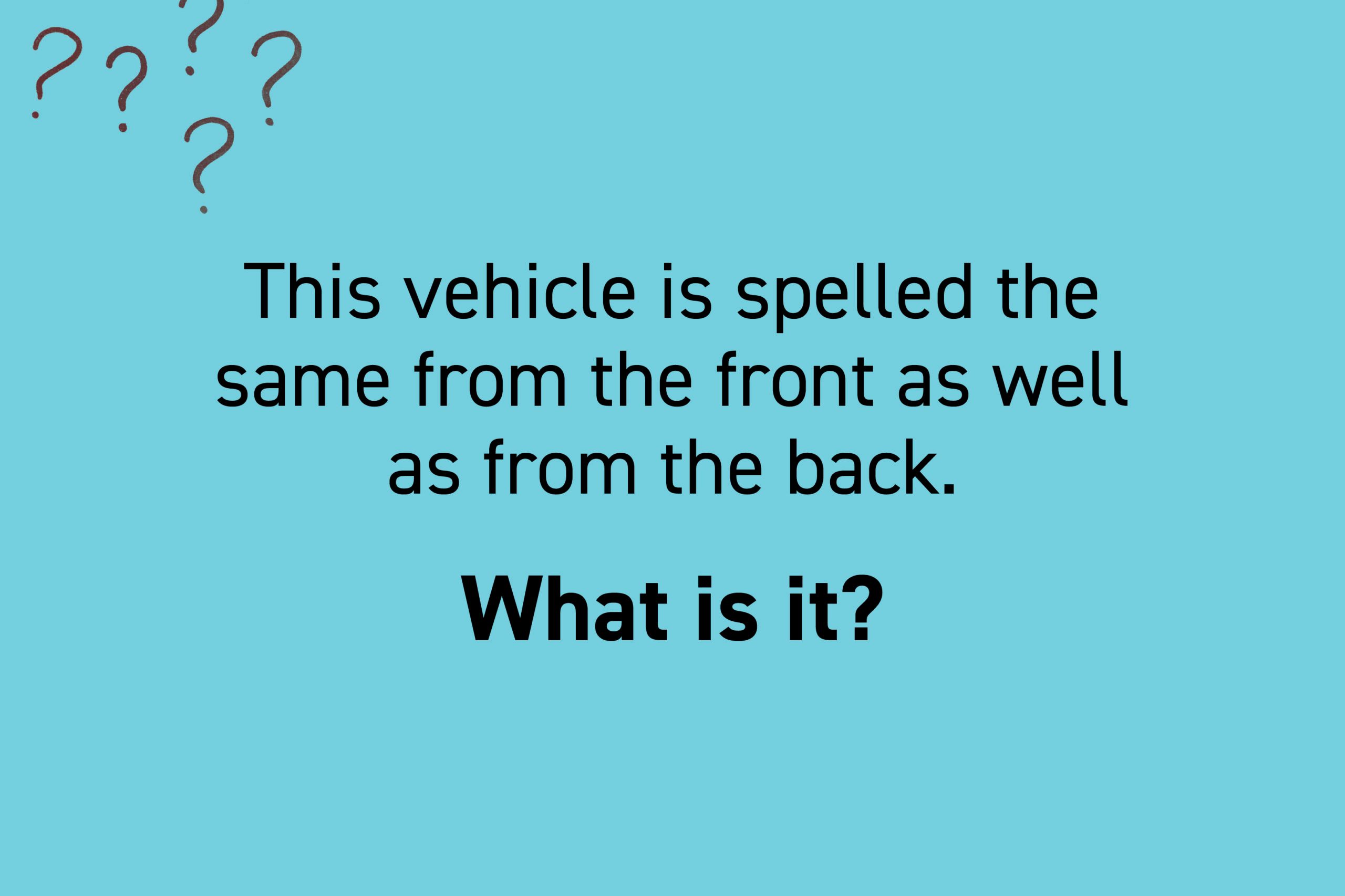
Riddle: Back and forth
This vehicle is spelled the same from the front as well as from the back. What is it?
This is one of the most challenging riddles for teens! Although there are many words that are palindromes—spelled the same backward as forwards—teens will have fun trying to come up with one that’s specifically a vehicle. This riddle might actually give them a bit more appreciation for the English language.
Answer: A racecar
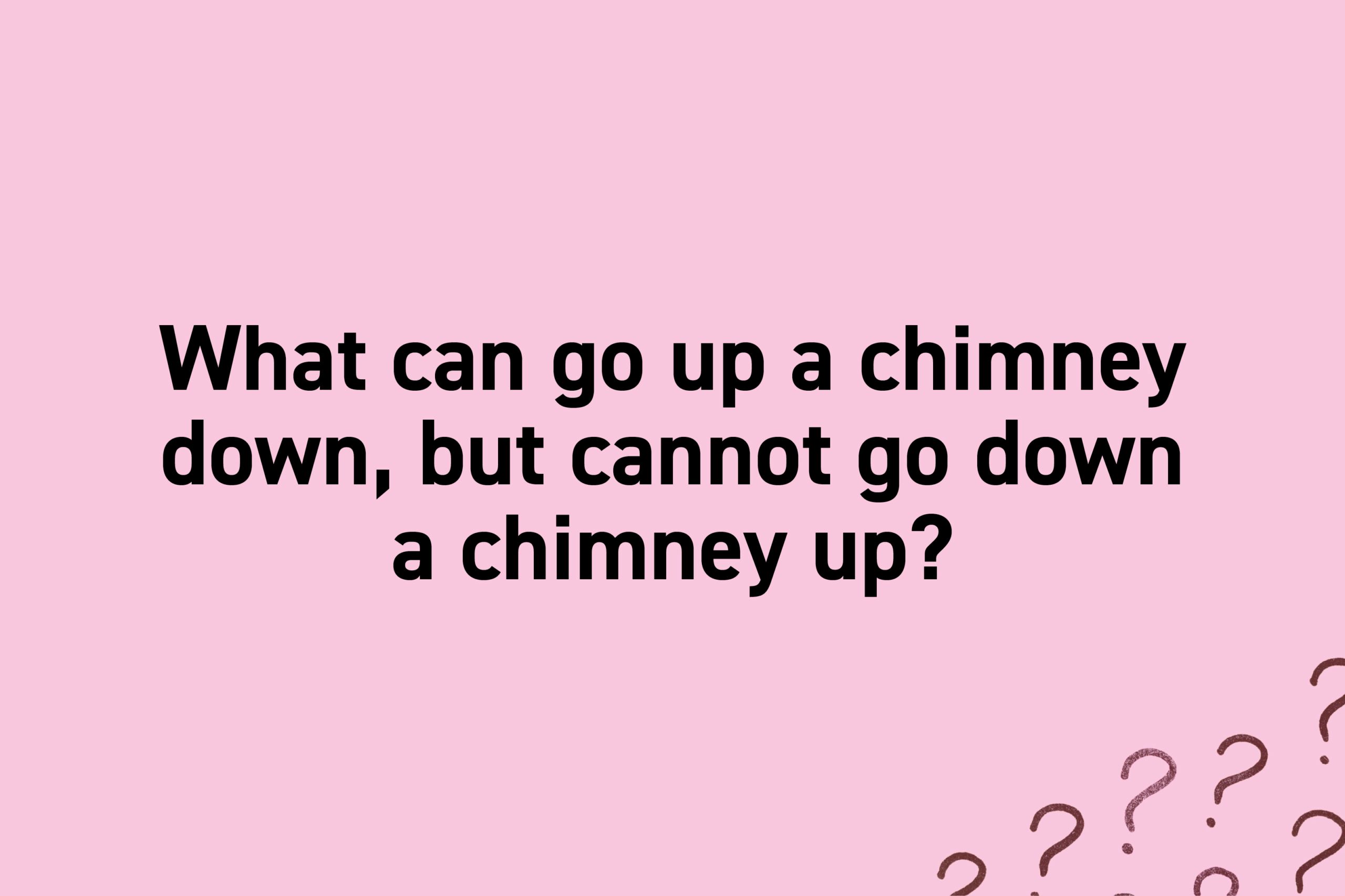
Riddle: Chim-chimney
What can go up a chimney down, but cannot go down a chimney up?
If they’re stuck, just say, “Mary Poppins.” Your teen might recall watching the movie as a kid, and how after she pops out of the top of the chimney, her umbrella opens up.
Answer: An umbrella. If your teen is getting frustrated with hard riddles, dial it back to these easy riddles (with answers) anyone can solve.

Riddle: Circular thinking
What has no beginning, end, or middle?
This question sounds very philosophical, but the answer is instead a very common object. If your teen is stuck, remind them of a time you got these tasty sweets as a special treat—it’ll bring back happy memories you both share!
Answer: A doughnut.

Riddle: As easy as apple pie
If there are three apples and you take two, how many do you have?
This sounds like a math word problem, but it actually isn’t. Because you “take” 2, you now “have” 2. If the question was, “how many are left?” then the answer would be 1. Check out more math riddles only the smartest can get right.
Answer: Two.
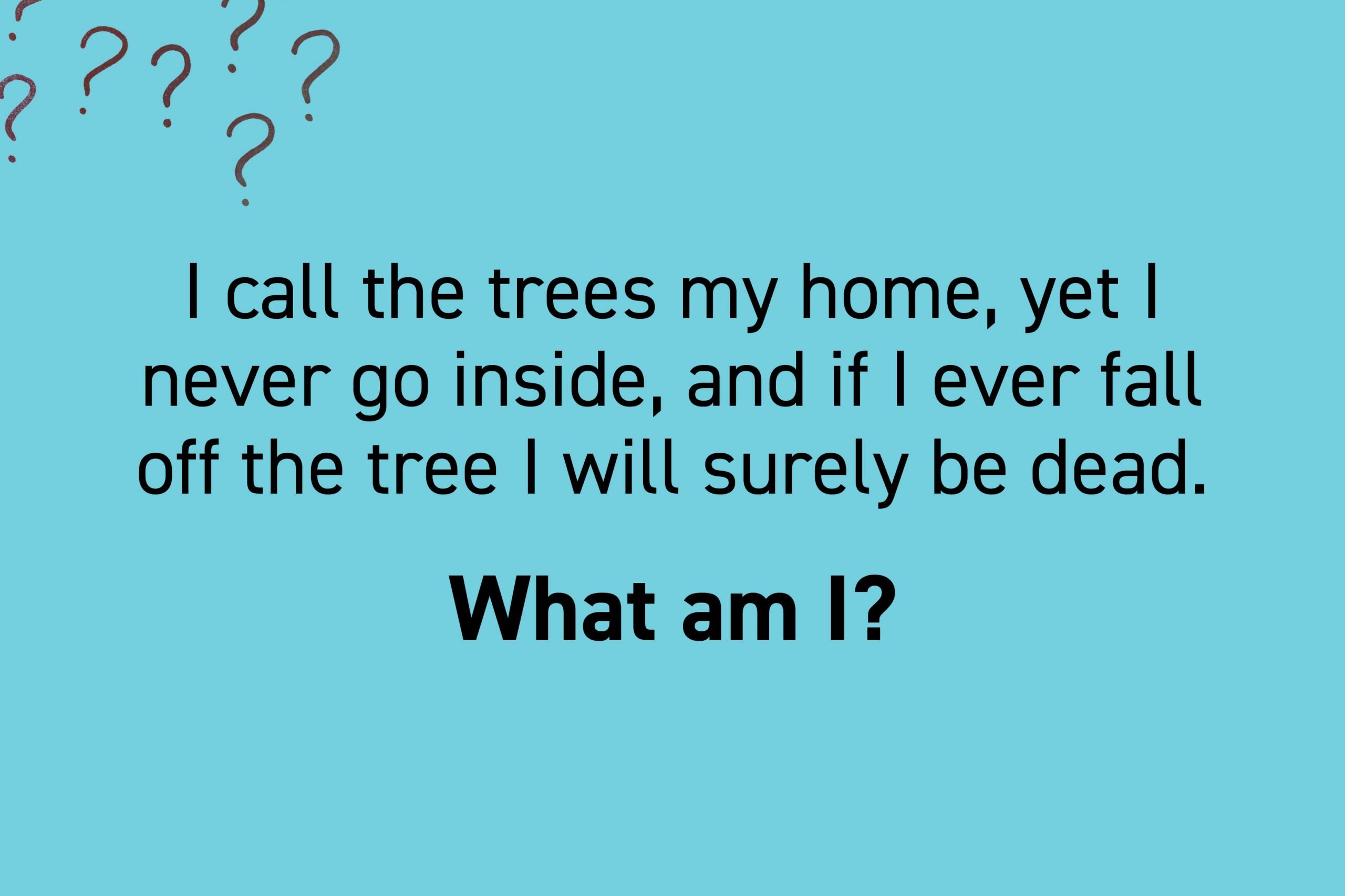
Riddle: Treehouse
I call the trees my home, yet I never go inside, and if I ever fall off the tree I will surely be dead.
Teens will either get this right away (the word “fall” might give it away, as that’s the name of the season) or be puzzling over this one for a while. Could it be a squirrel? A baby bird? Nope, the answer is something even more obvious—once you know what it is.
Answer: Leaves.
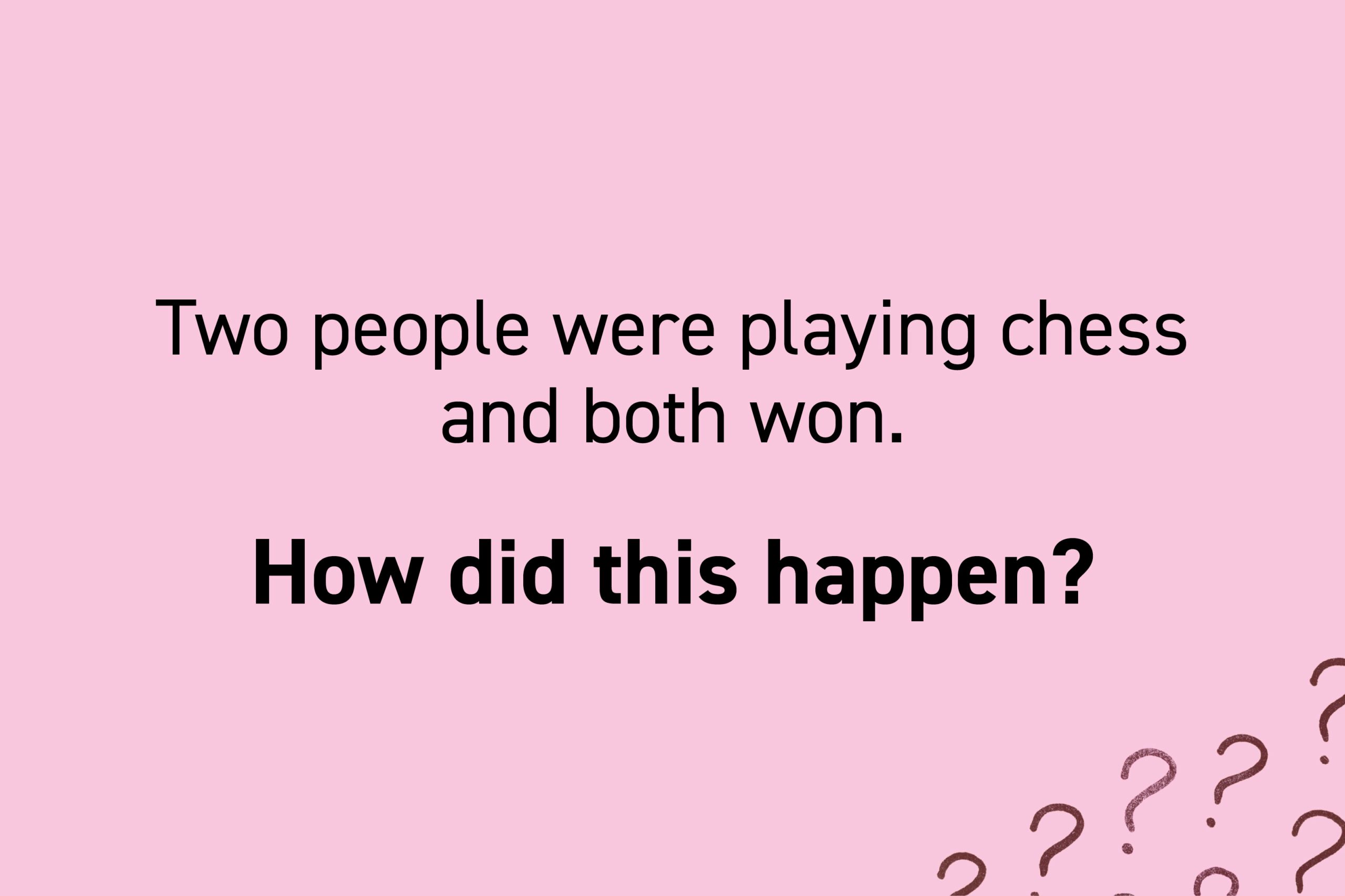
Riddle: Checkmate
Two people were playing chess and both won. How did this happen?
Chess is cool again thanks to the popularity of the Netflix show The Queen’s Gambit, so teens might appreciate this riddle. Like a game of chess, this one challenges you to think of possibilities you previously hadn’t considered. In this case, the answer lies in the information that isn’t there; namely, that nowhere does it say the two people were playing against each other.
Answer: They were playing against other opponents. Chess is also one of the genius brain boosters for kids you can do together.
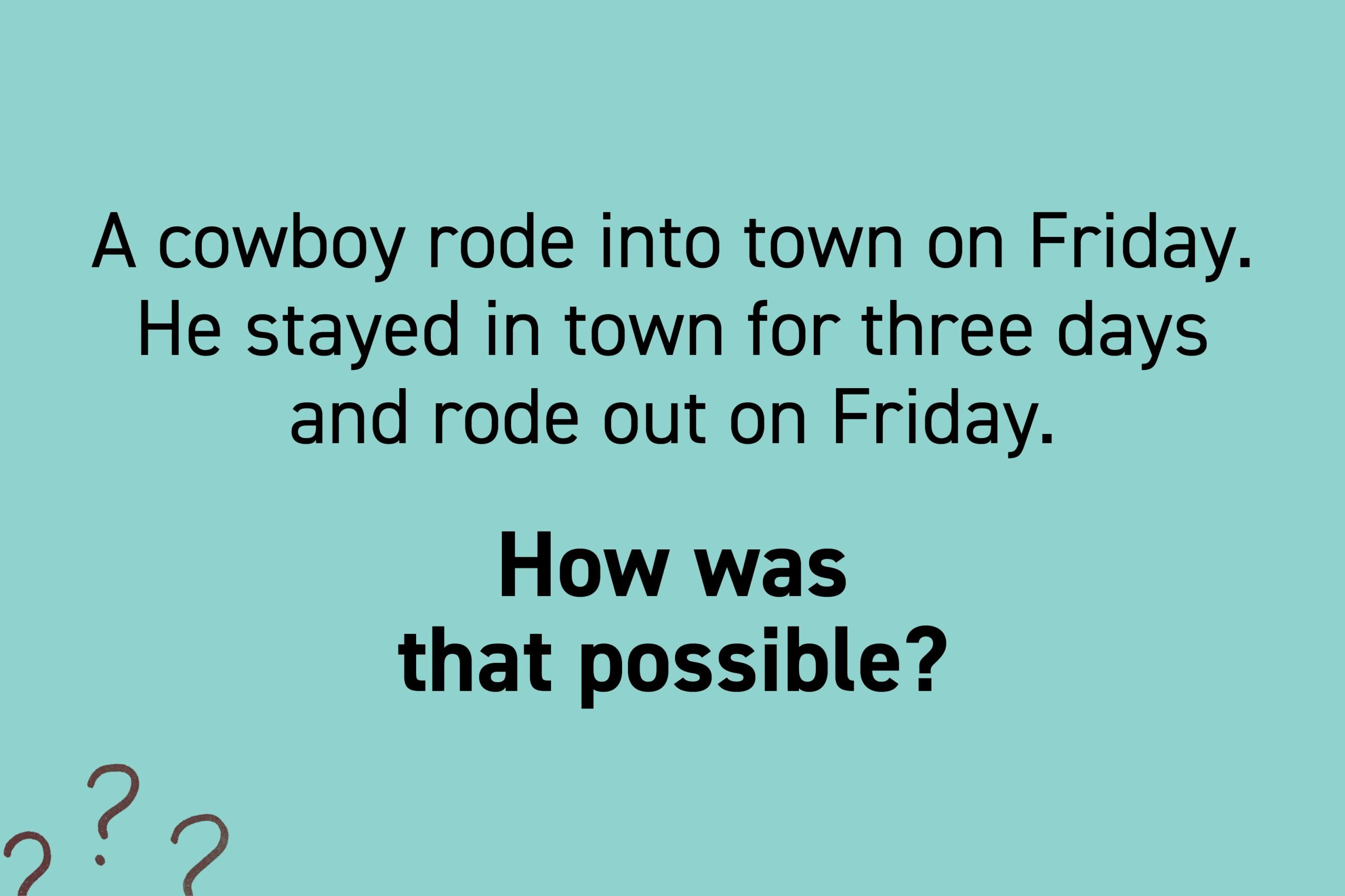
Riddle: Ride ’em, cowboy
A cowboy rode into town on Friday. He stayed in town for three days and rode out on Friday. How was that possible?
Riddles love to play with naming characters after days of the week to throw you off track. Once your teen catches wise to this, it will give them another strategy for figuring out any riddle that includes days of the week.
Answer: Friday was the name of his horse. These horse jokes are also whinn-ing.
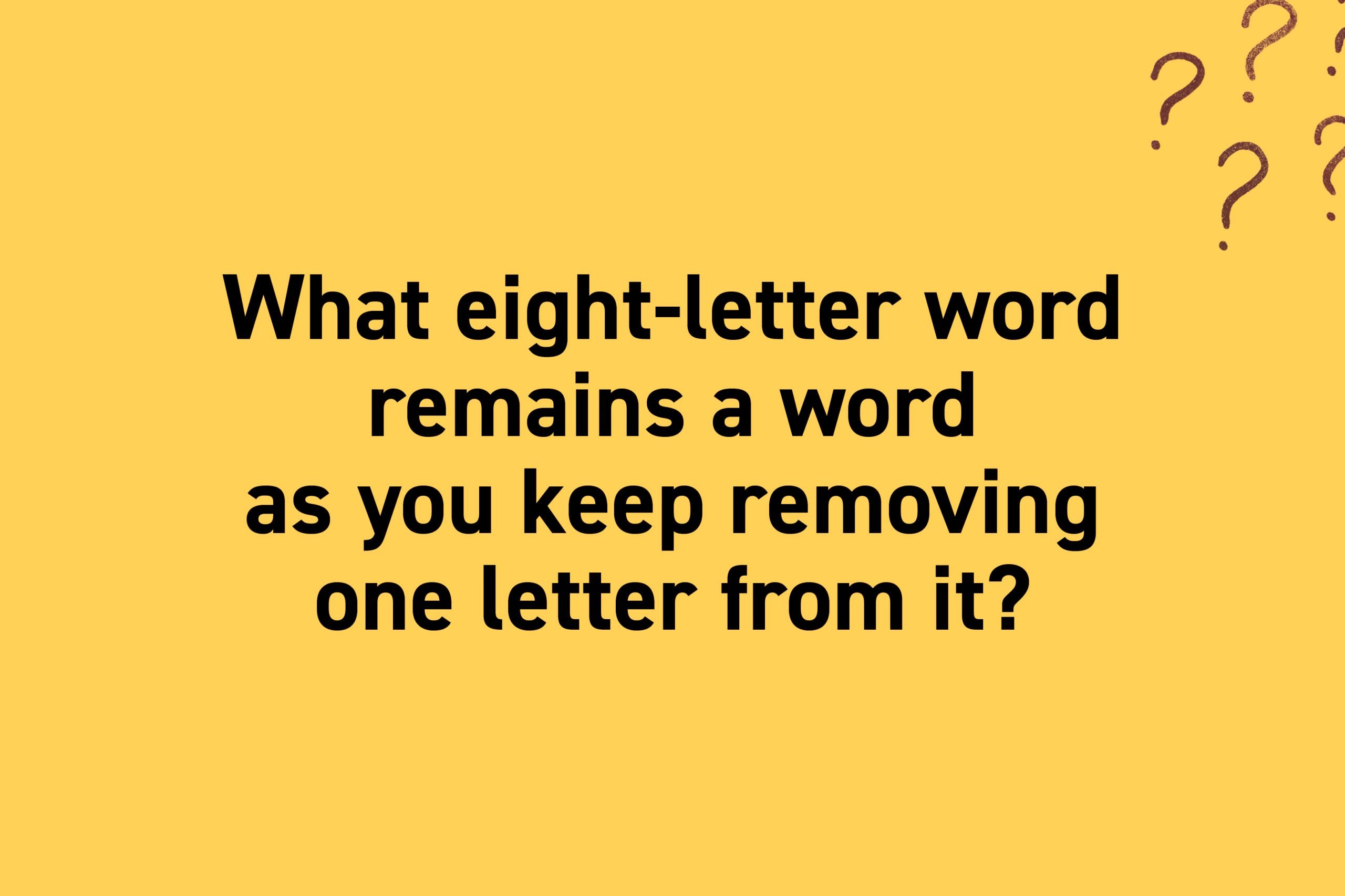
Riddle: Word problem
What eight-letter word remains a word as you keep removing one letter from it?
This is one of the hardest riddles for teens—with all the words in the dictionary, it can be difficult to stumble across the one that works. But once you know the answer, it’s really cool to see how it works: “starting” turns to “staring,” then “string,” “sting,” “sing,” “sin,” “in” and “I.”
Answer: Starting. For more, try these word puzzles that will leave you stumped.
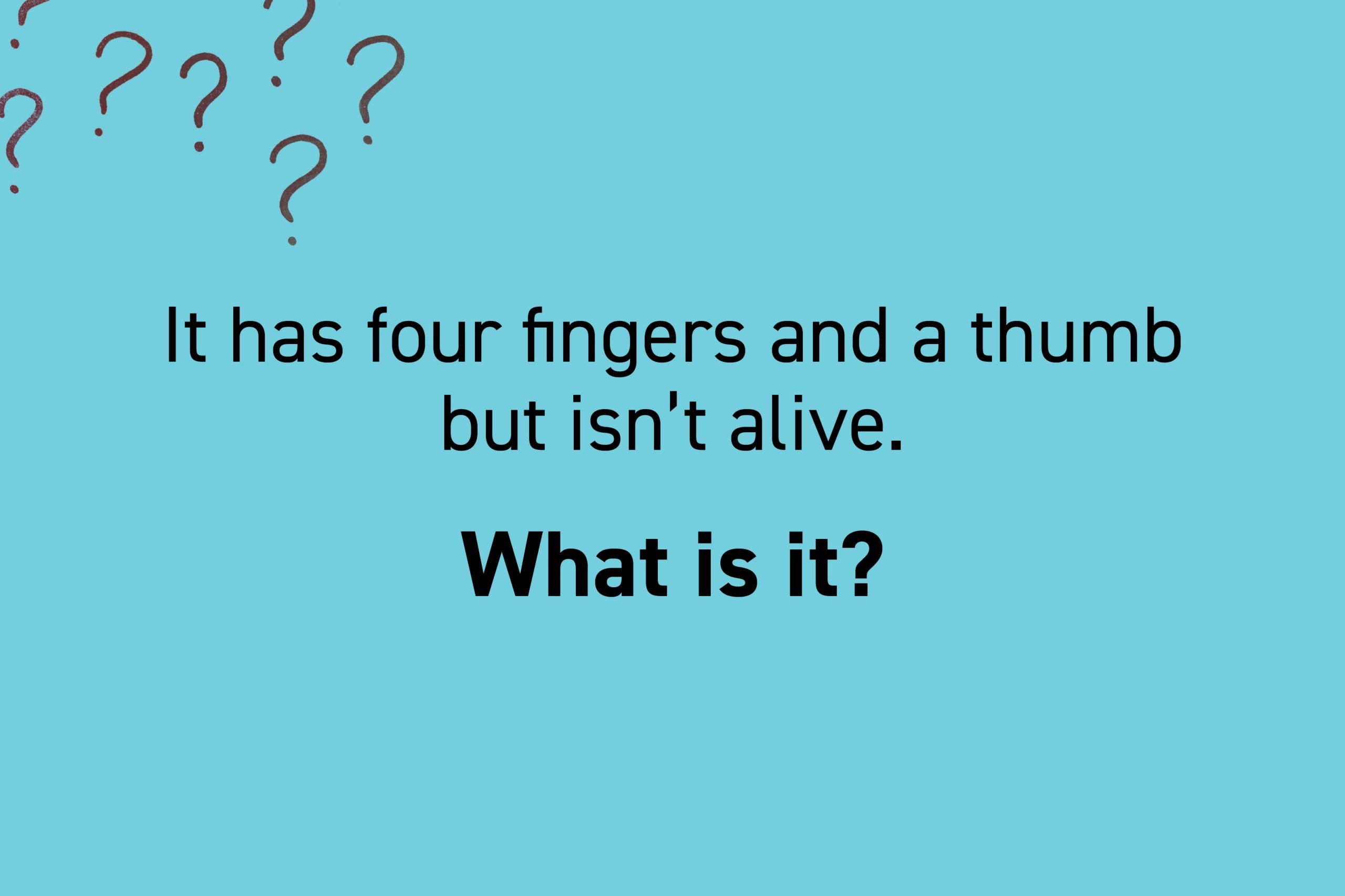
Riddle: Thumbs up
It has four fingers and a thumb but isn’t alive. What is it?
Like the “13 hearts” question, this riddle plays with body parts and inanimate objects. Your teen may be thinking about biology class, and may even guess that the answer is a dead body (which wouldn’t totally be wrong). But the intended answer has to do more with thinking outside the box, or in this case, the glove.
Answer: A glove
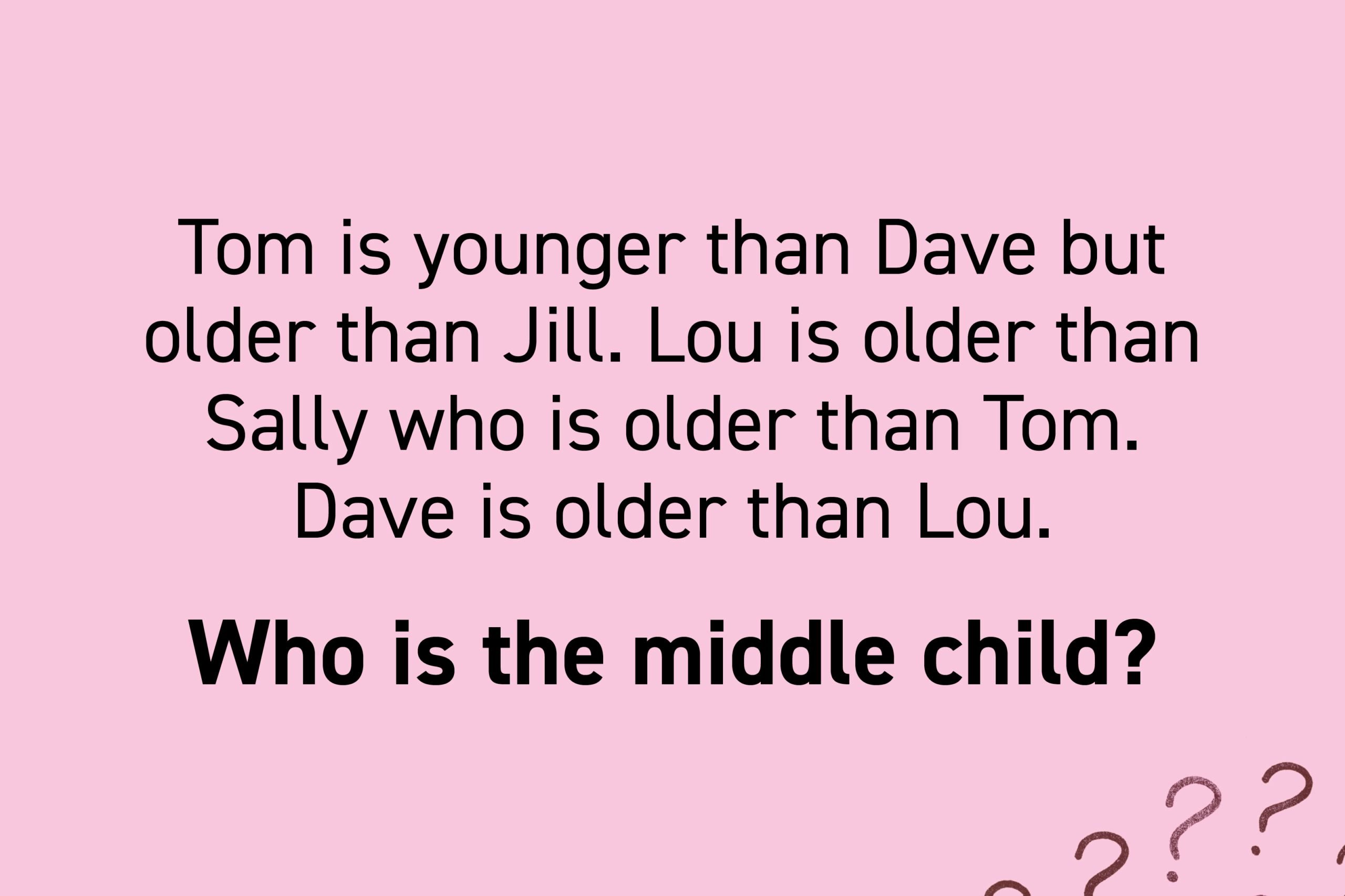
Riddle: Birth order
Tom is younger than Dave but older than Jill. Lou is older than Sally who is older than Tom. Dave is older than Lou. Who is the middle child?
This one might require a pen and paper (or the Notes app on your teen’s cell phone). The trick is to skip the second clue, because there’s not enough info to know whether to place Lou and Sally above or below Dave until you read the third clue.
Answer: Sally.
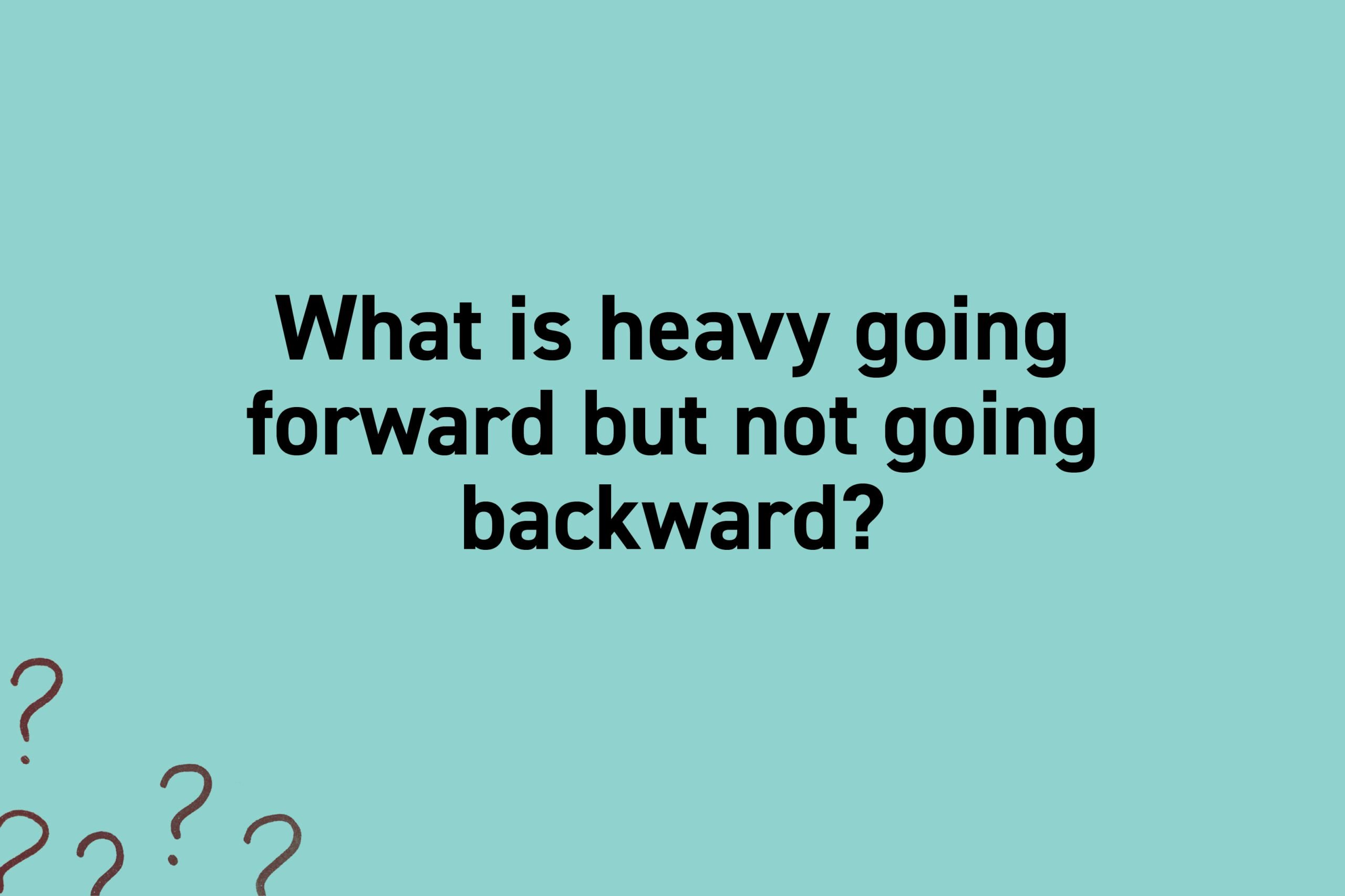
Riddle: “Not” hard at all
What is heavy going forward but not going backward?
This is a play on how you read the sentence: It seems to mean that the answer is “not heavy” going backward, but really, it’s saying that the answer backward is spelled “not.” You and your teen may have fun debating whether this one is also a fairly worded question—see how their argument holds up!
Answer: Ton.
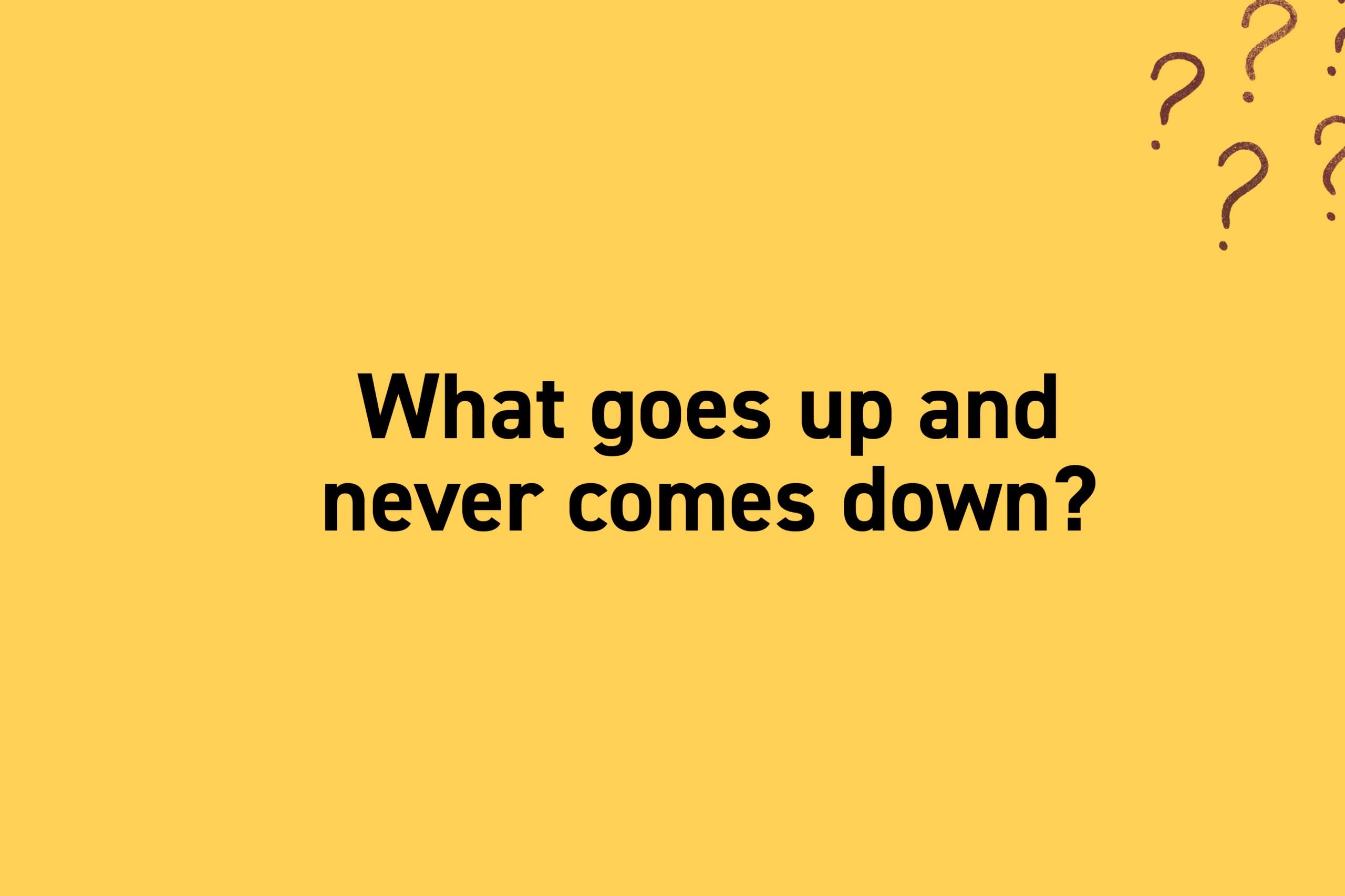
Riddle: An age-old question
What goes up and never comes down?
This is one of those riddles that seems totally obvious when you find out the answer, but hard to guess when you just hear the clue. See if your teen can get it: Growing up is probably top of mind for them anyway! Try more brain teasers for kids that will beat boredom.
Answer: Your age.

Riddle: As clear as day
What can go through glass without breaking it?
Quick-thinking teens might get this right away, but if they focus too much on the word “breaking,” they’ll be thinking about three-dimensional objects and the question will seem impossible. Solving riddles instead involves getting creative and looking at all possibilities.
Answer: Light.
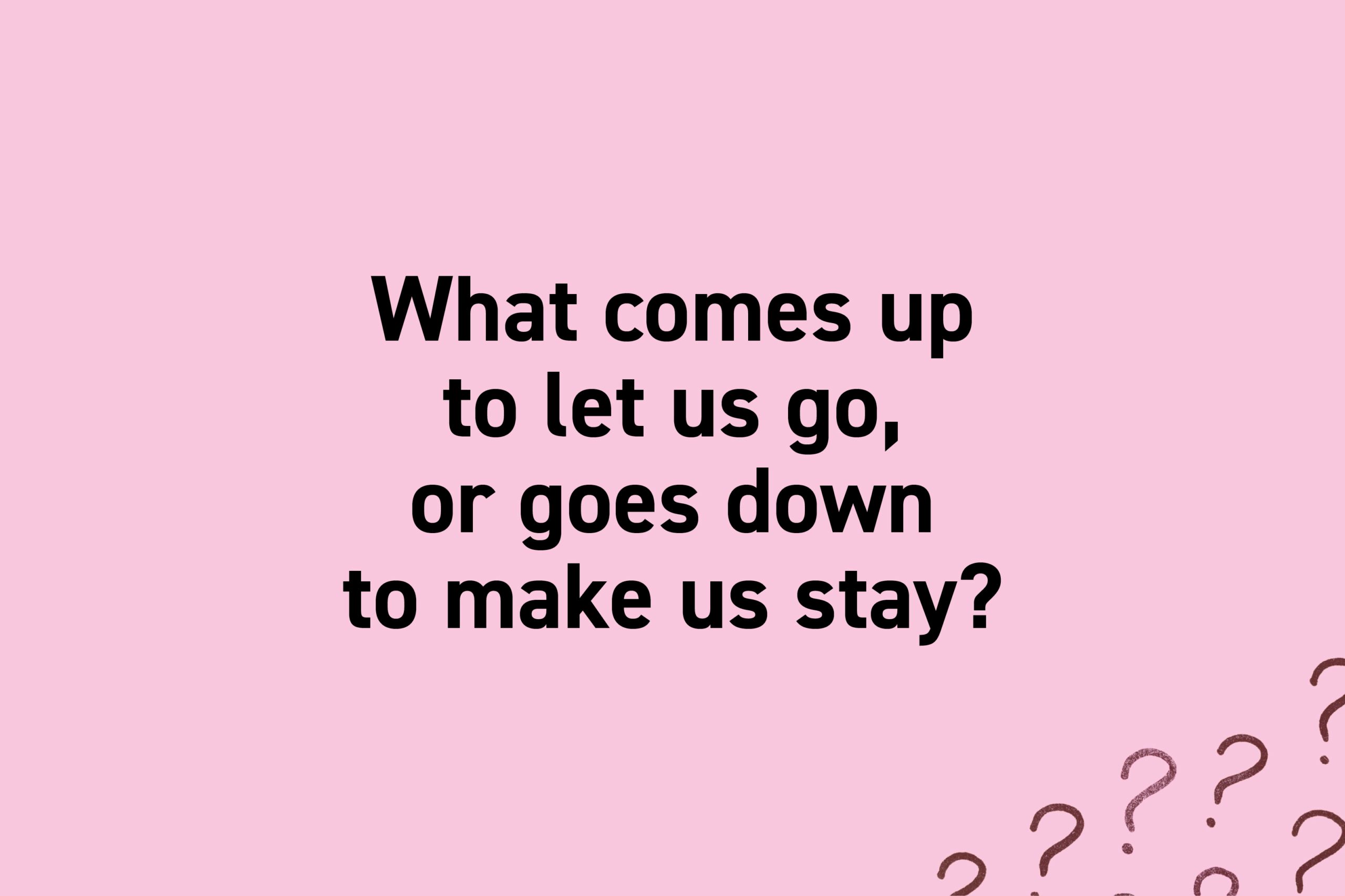
Riddle: Going up or down
What comes up to let us go, or goes down to make us stay?
Boat-loving teens might come up with the answer to this one, but those who haven’t been on one very often might not. Riddles can make teens think outside their own zones of what they’re into: Give them a little clue if necessary to help them on their way.
Answer: An anchor.

Riddle: Sports fanatic
Here’s a list of sports: golf, darts, tennis, cricket, football, badminton. Which should come next: archery, boxing, squash, gymnastics, or baseball?
Teens might not understand this riddle even after they find out the answer. It’s not about the sports themselves—that’s just to throw you off. And it’s clearly not alphabetical order, but thinking about order is closer to the right answer. So why is gymnastics correct? Each sport has one more letter than the sport before: “badminton” has nine, so “gymnastics” has 10.
Answer: Gymnastics.
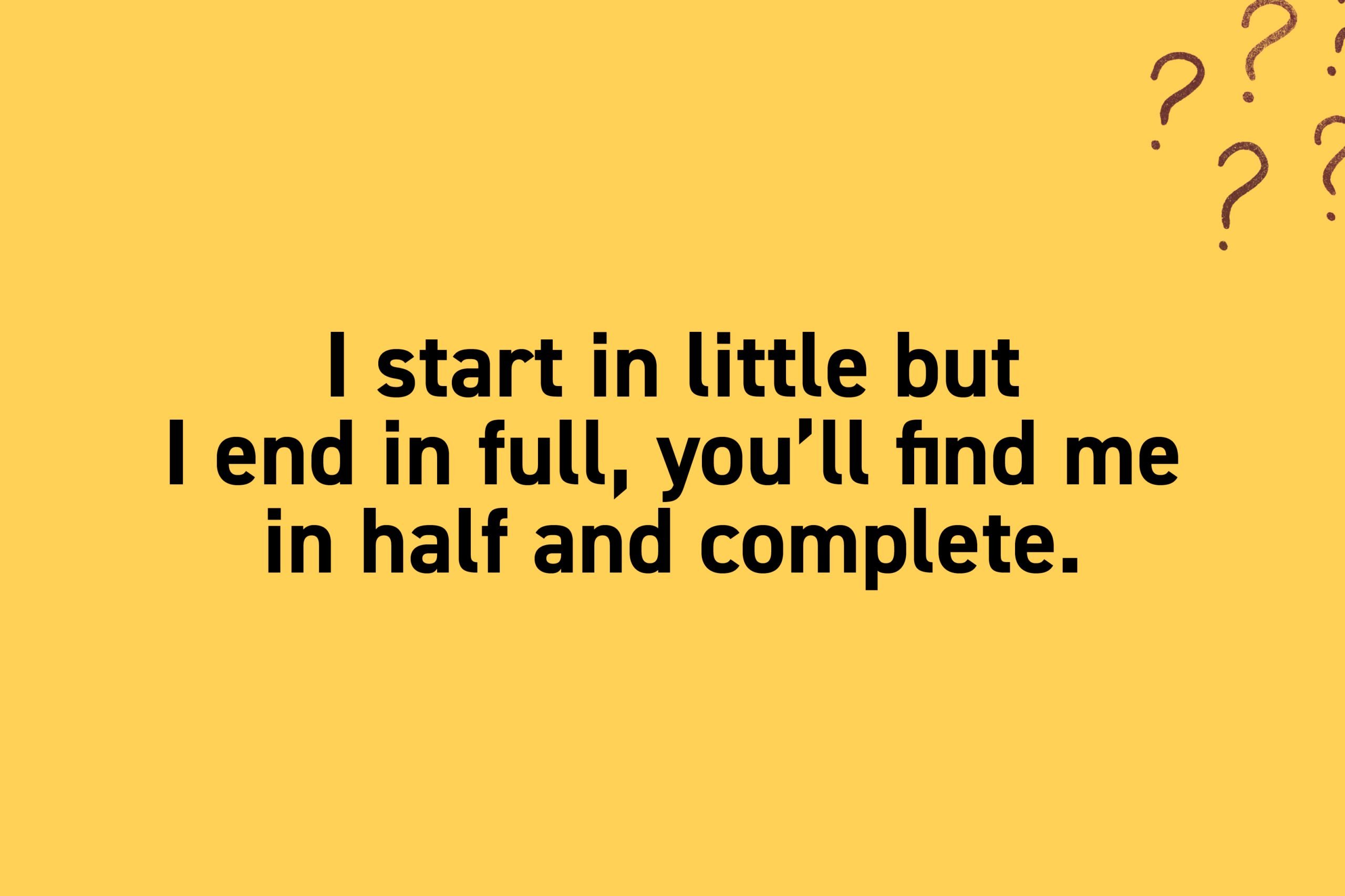
Riddle: To the letter
I start in little but I end in full, you’ll find me in half and complete.
Riddles also love to play with the spelling of words: So for this one, your teen might be looking for a literal answer, when really the clue is referring to the letters inside the words. “Little,” “full,” “half,” and “complete” all contain “l”s.
Answer: The letter “l.” Can you find the missing number in this puzzle?
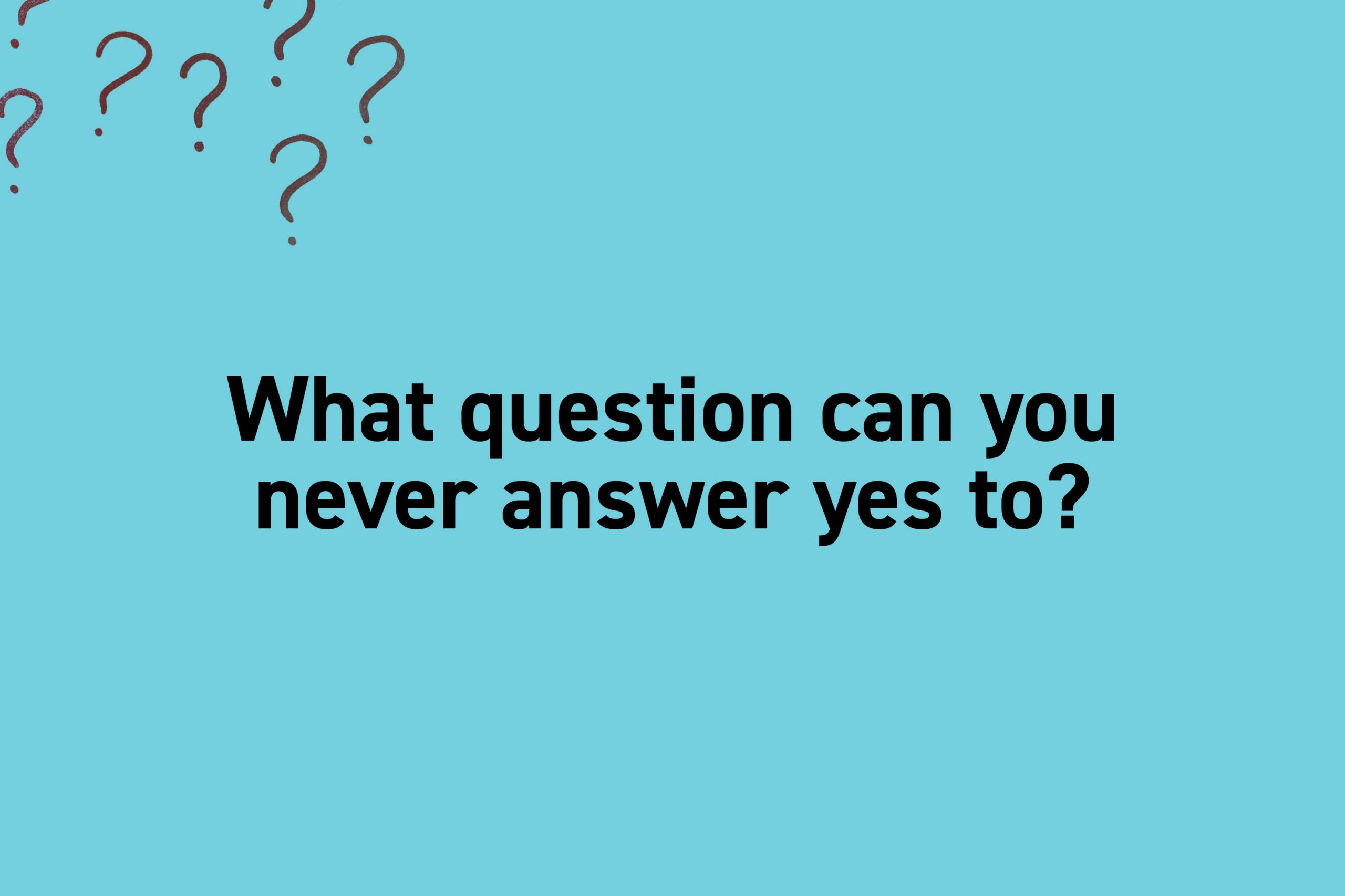
Riddle: Nighty-night
What question can you never answer yes to?
This has to be the silliest question ever, because it only has one possible answer (or has the effect of waking up the other person). You and your teen can laugh about this one: Chances are, when they were little they woke you up more than once with this question while you were dozing on the couch.
Answer: Are you asleep?
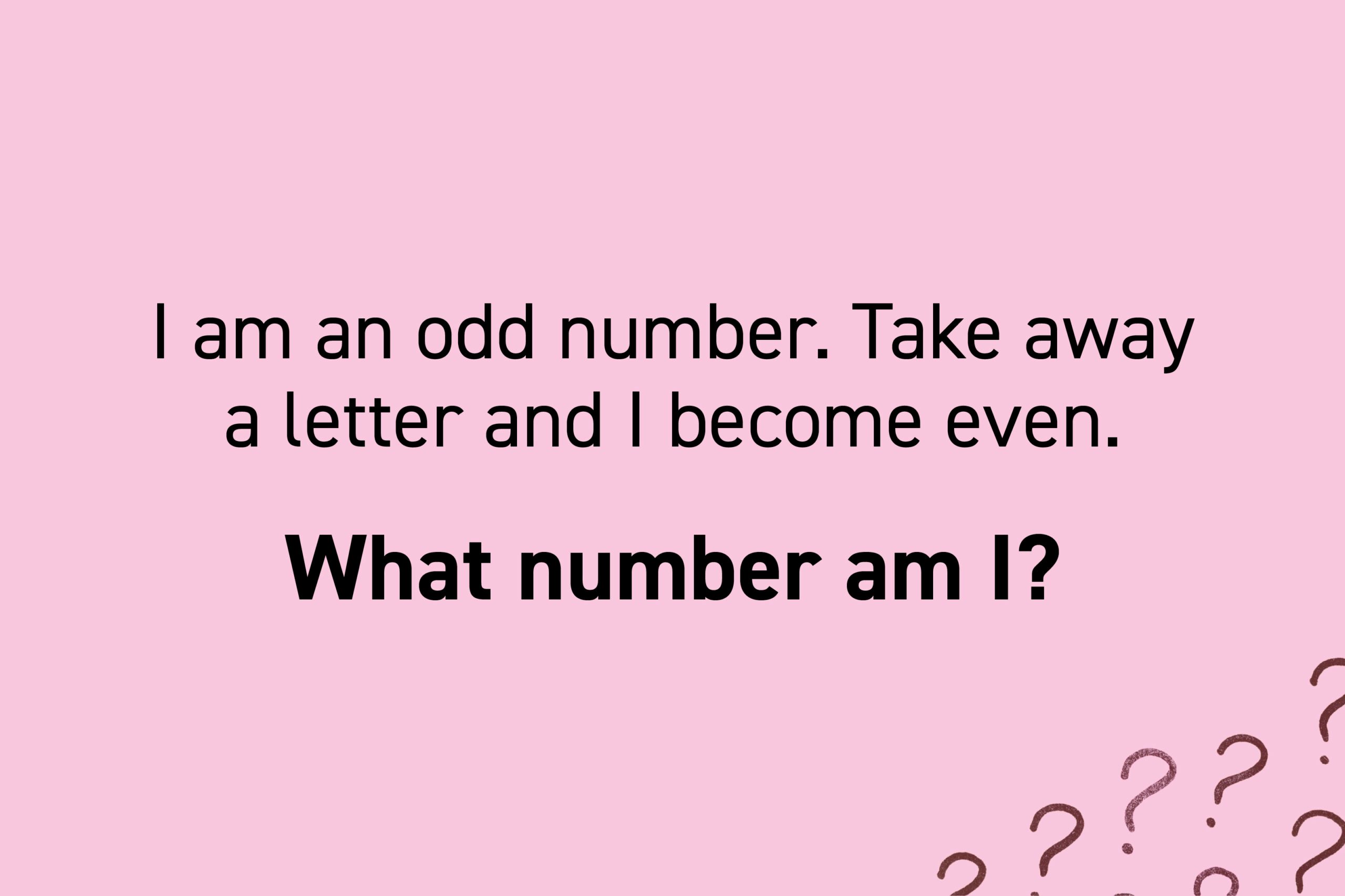
Riddle: Odds or evens
I am an odd number. Take away a letter and I become even. What number am I?
This riddle blends math with wordplay once again: Your teen will think they’re looking for an actual number with those properties—ie, an even number—but they’re actually looking for a number that when a letter is taken away will spell the word “even.” Tricky!
Answer: Seven.
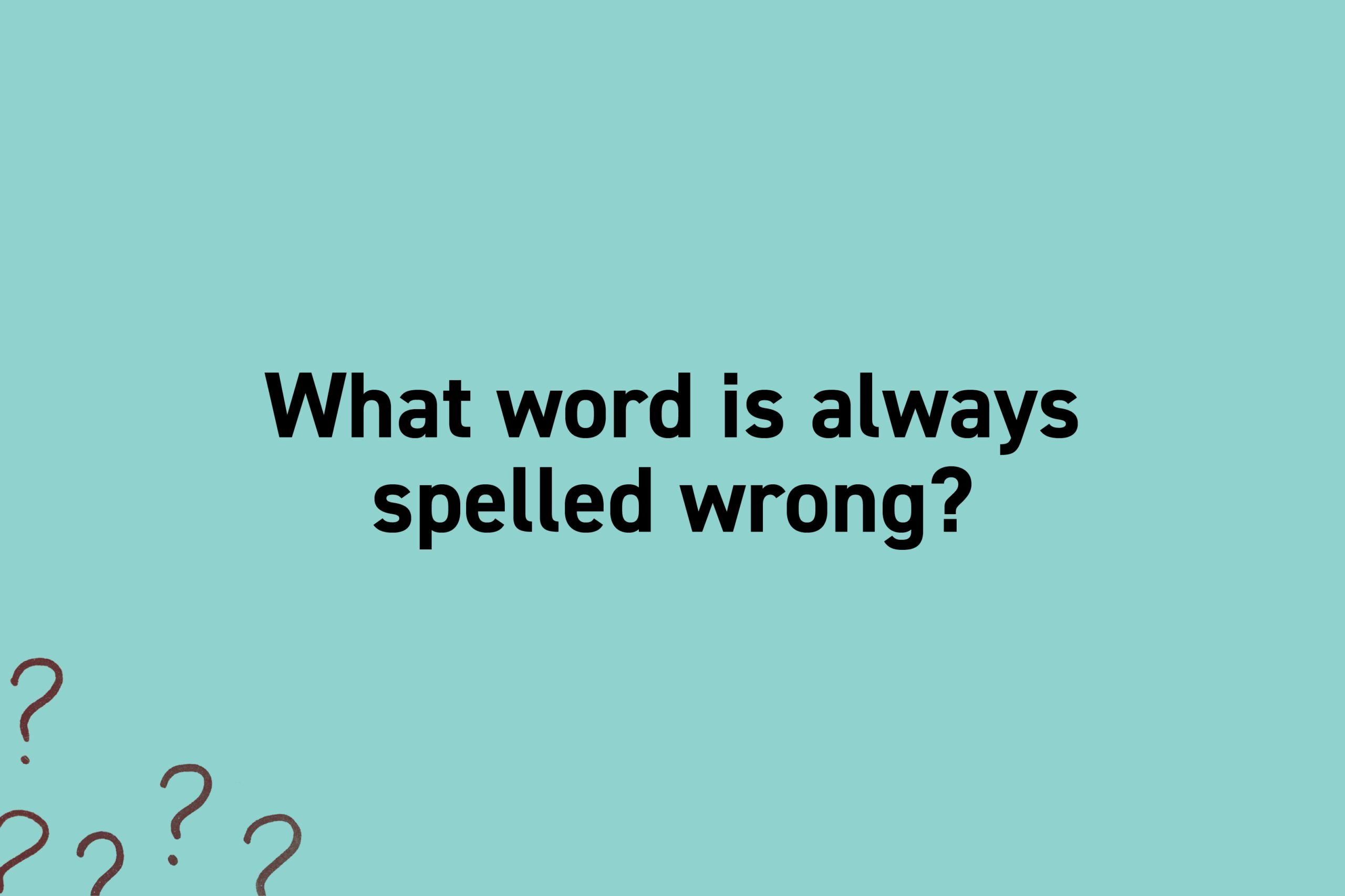
Riddle: Spelling bee
What word is always spelled wrong?
Riddles love to play with misdirection. Here, your teen will be trying to figure out how and why a word could possibly be spelled wrong all the time—but the trick is, the word itself is “wrong.” You can also discuss whether the word “wrong” should be put in quotation marks for clarity, as it is in this sentence.
Answer: Wrong.
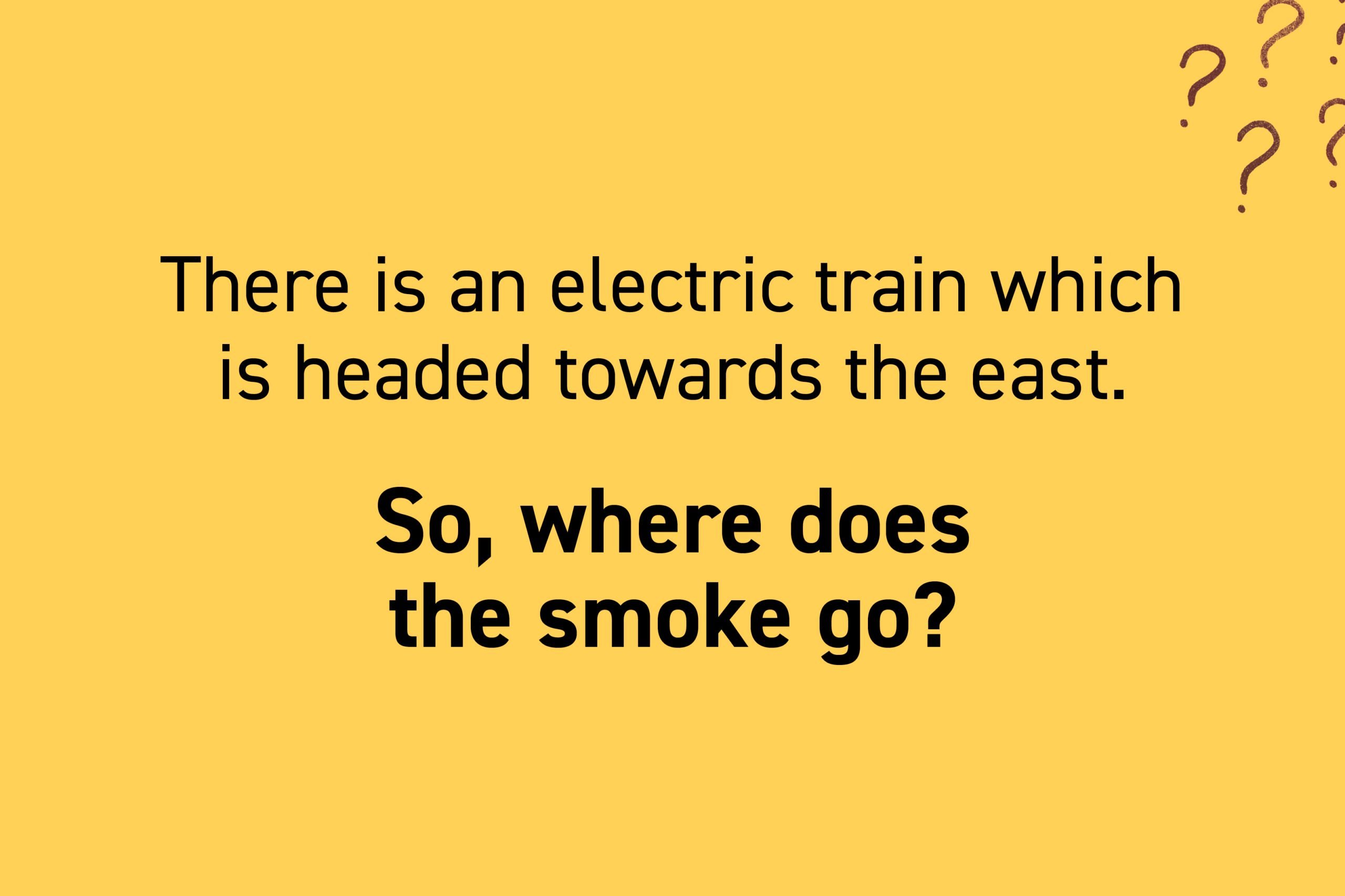
Riddle: Train trouble
There is an electric train which is headed towards the east. So, where does the smoke go?
Trick question! Teens will have to listen carefully to get the right answer to this one. Instead of thinking about whether smoke would go in the opposite direction of where the train is headed—not to mention how the way the wind is blowing would affect the smoke—they just have to pay close attention to the first few words of the question.
Answer: There is none: An electric train produces no smoke. If they think they have Sherlock-like attention to detail, have your teen try the detective riddles only the smartest people can solve.

Riddle: Balled over
I am a ball that rolls but can’t bounce or be thrown.
This one may get you an “eww, gross!” from your teen, but they’ll secretly love it. And if they don’t understand how an eyeball can be rolled (they could be picturing one being bowled—talk about gross), remind them how they love to “roll their eyes” at you.
Answer: An eyeball.
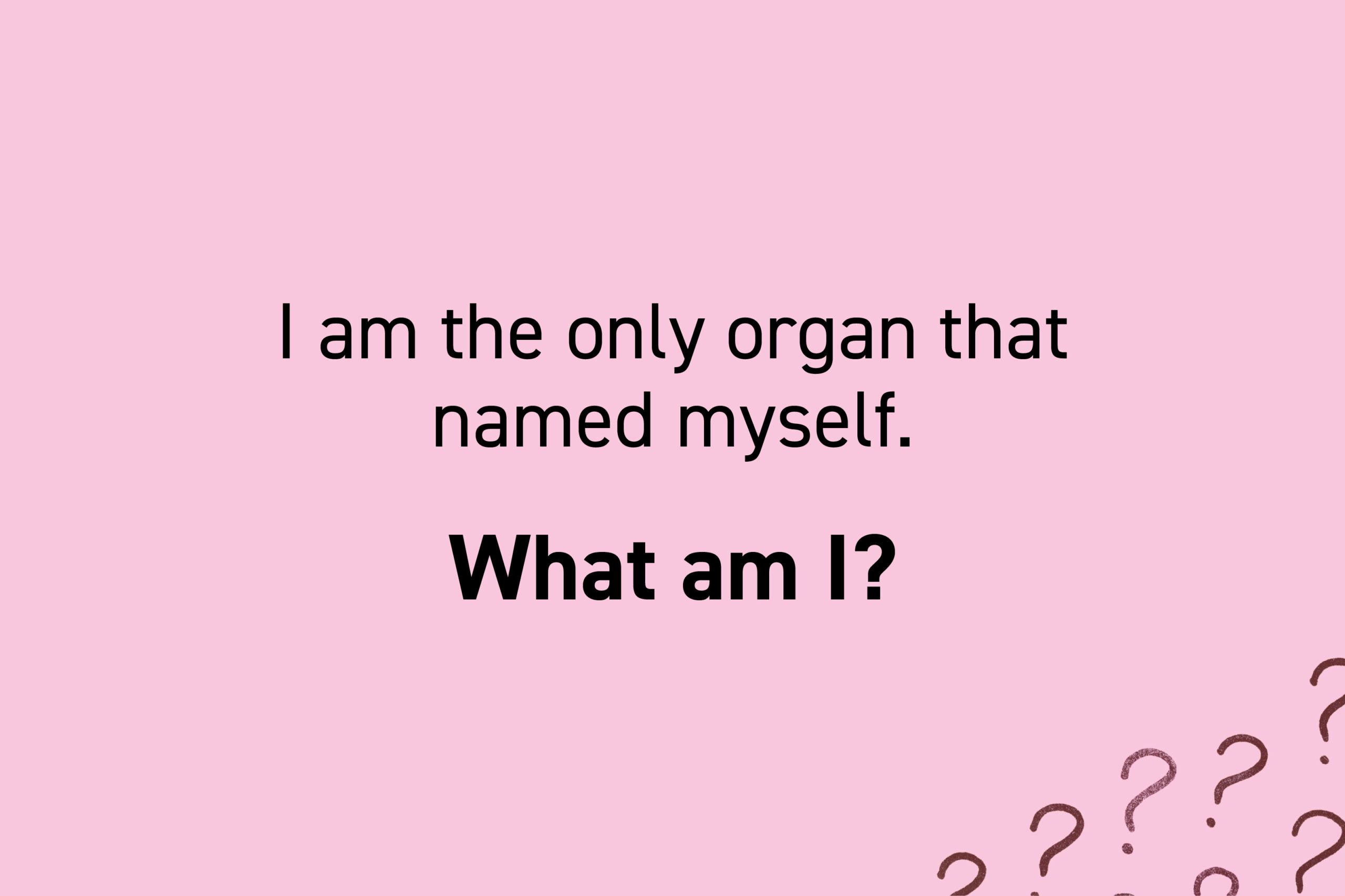
Riddle: More anatomy lessons
I am the only organ that named myself. What am I?
This is a totally meta question your teen will appreciate: What organ came up with the names of all the organs, and everything in the world for that matter? The human brain, of course. Mind blown!
Answer: The brain.
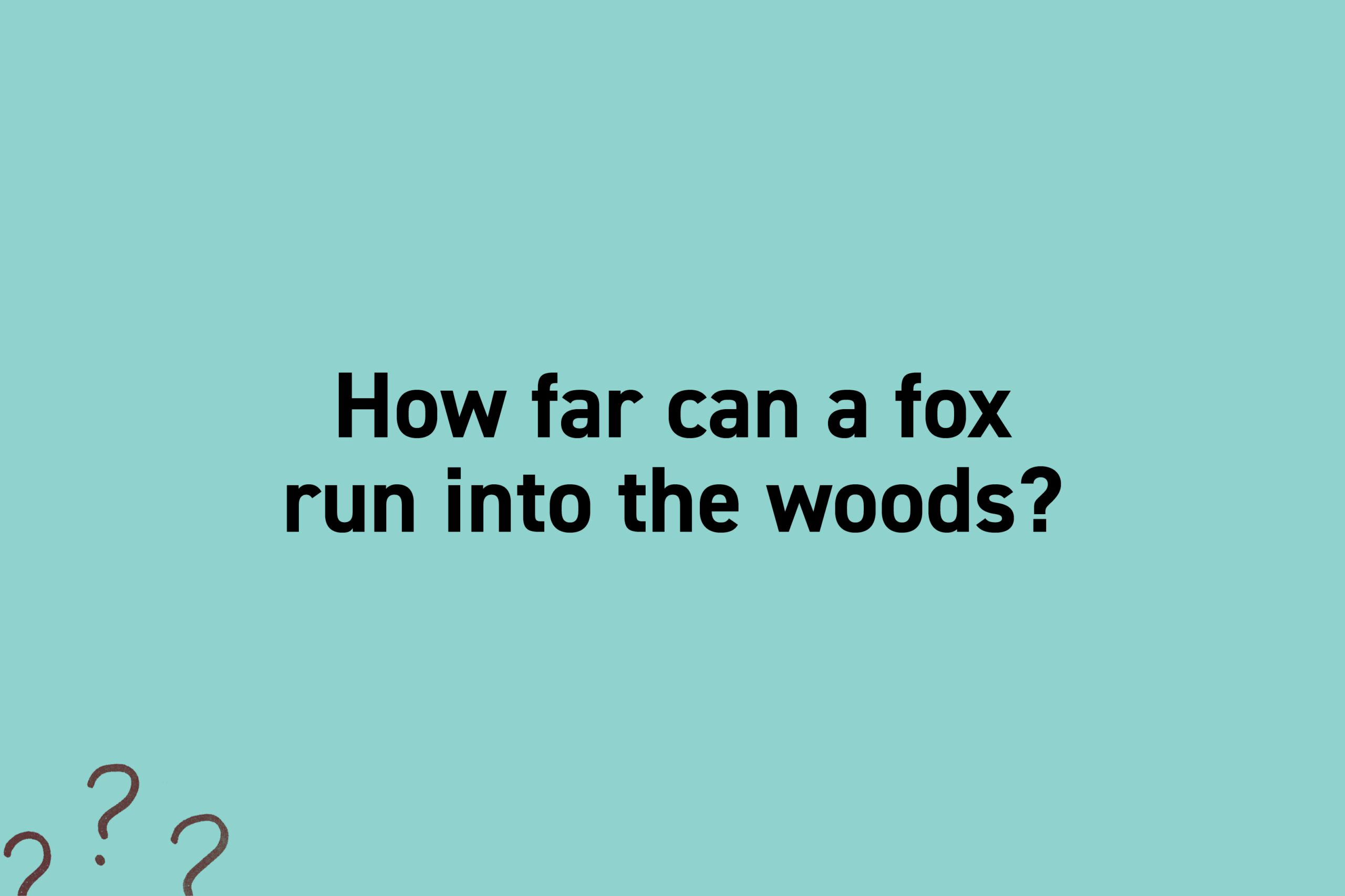
Riddle: Sly as a fox
How far can a fox run into the woods?
Your teen might think you need particular measurements for this one, but there’s a universal answer they might not immediately see. Tell them that if the answer to a riddle seems too impossible, it probably means there’s a simpler solution.
Answer: Halfway; otherwise he’d be running out of the woods.
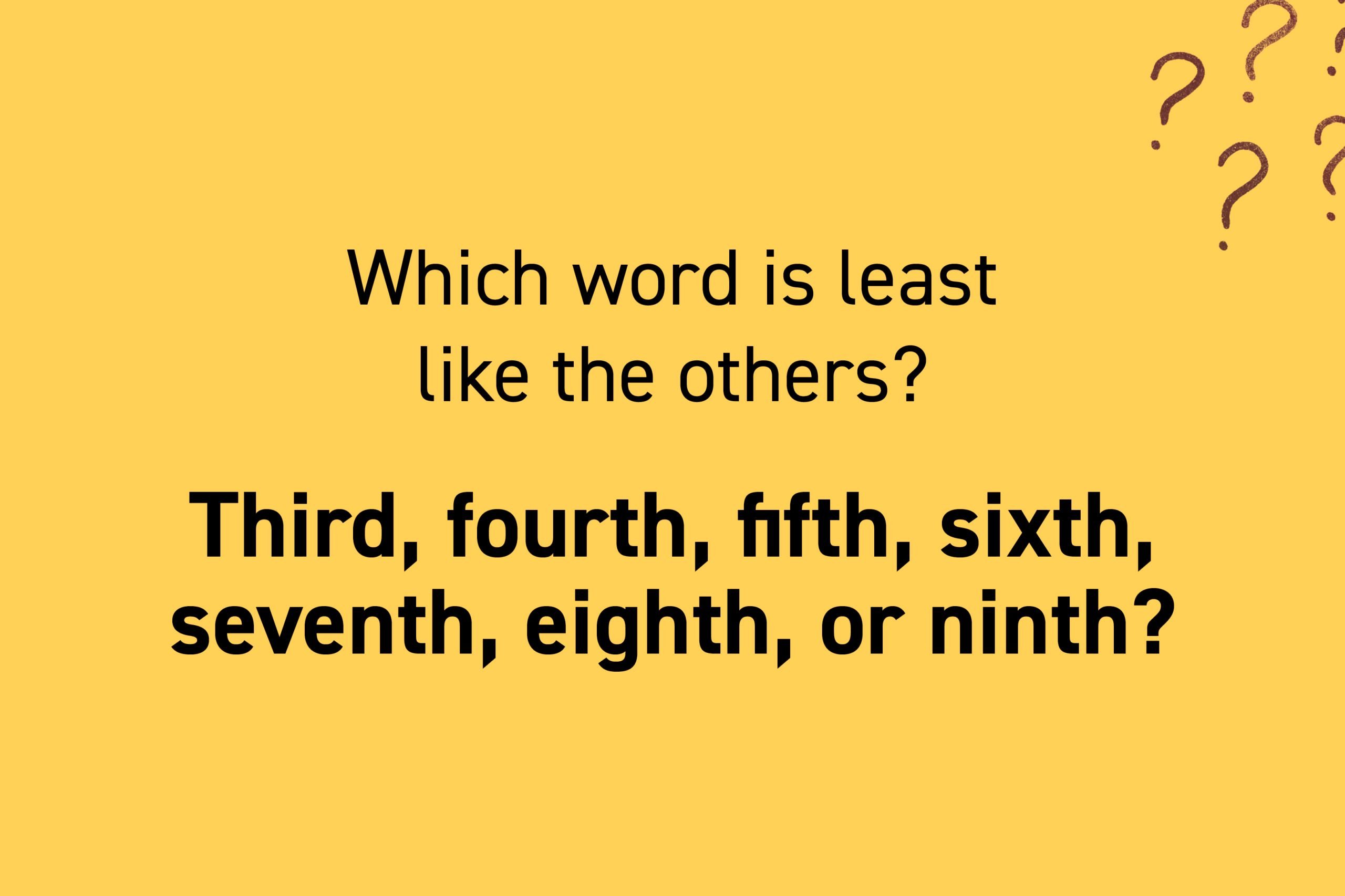
Riddle: Math problem
Which word is least like the others? Third, fourth, fifth, sixth, seventh, eighth, or ninth?
This riddle seems to be a math problem: Maybe your teen will be focused on odd or even numbers or even number patterns that are more complicated. But this is another case of misdirection because it’s actually an English problem: All the others end in “th,” whereas “third” begins with “th.”
Answer: Third. Ready for more number-wordplay? You can spell every number up to 1,000 without this common letter: Can you guess what it is?
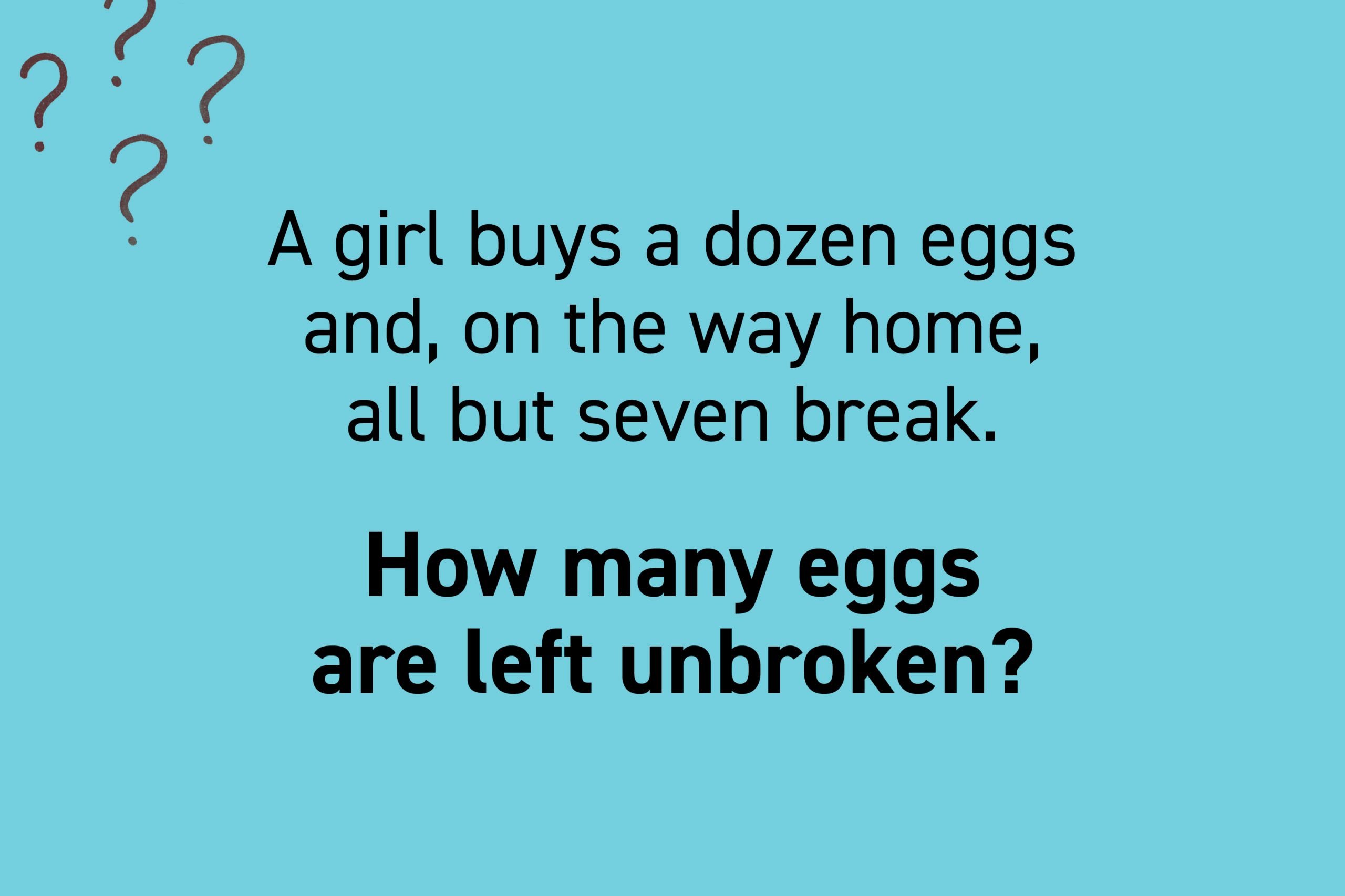
Riddle: Eggs-cellent
A girl buys a dozen eggs and, on the way home, all but seven break. How many eggs are left unbroken?
This is another riddle where the answer is literally in the question. But teens have to have attention to detail to solve it, otherwise, they might skip over the pertinent info, or make the mental leap to thinking seven actually broke. In that case, they’ll be doing the extra work of figuring out that a dozen is 12, and then subtracting seven to get five, which is incorrect.
Answer: Seven.

Riddle: River crossing
A farmer has a bag of corn, a hen, and a fox. He has to cross a river, but his boat is only big enough to carry one thing with him. If the hen is left with the corn, she will eat it. If the hen is left with the fox, the fox will eat the hen. How can the farmer get all the three things across the river?
This is the final, and biggest, challenge for your teen. One of the most famous riddles is the “river crossing” puzzle, in which three things have to be brought across but in a specific order. They’re hard, but can also be fun brain twisters that give teens a sense of accomplishment when they figure them out.
Answer: The farmer takes the hen with him in the boat and leaves it on the other bank. He goes back and brings the fox back with him. He drops off the fox on the other side but then brings the hen back along with him. He then drops it on the first bank and takes the corn with him. He leaves the corn across the river with the fox. He then returns for the last time to get the hen. For your next major challenge, only 2 percent of people can solve Einstein’s Riddle—can you?